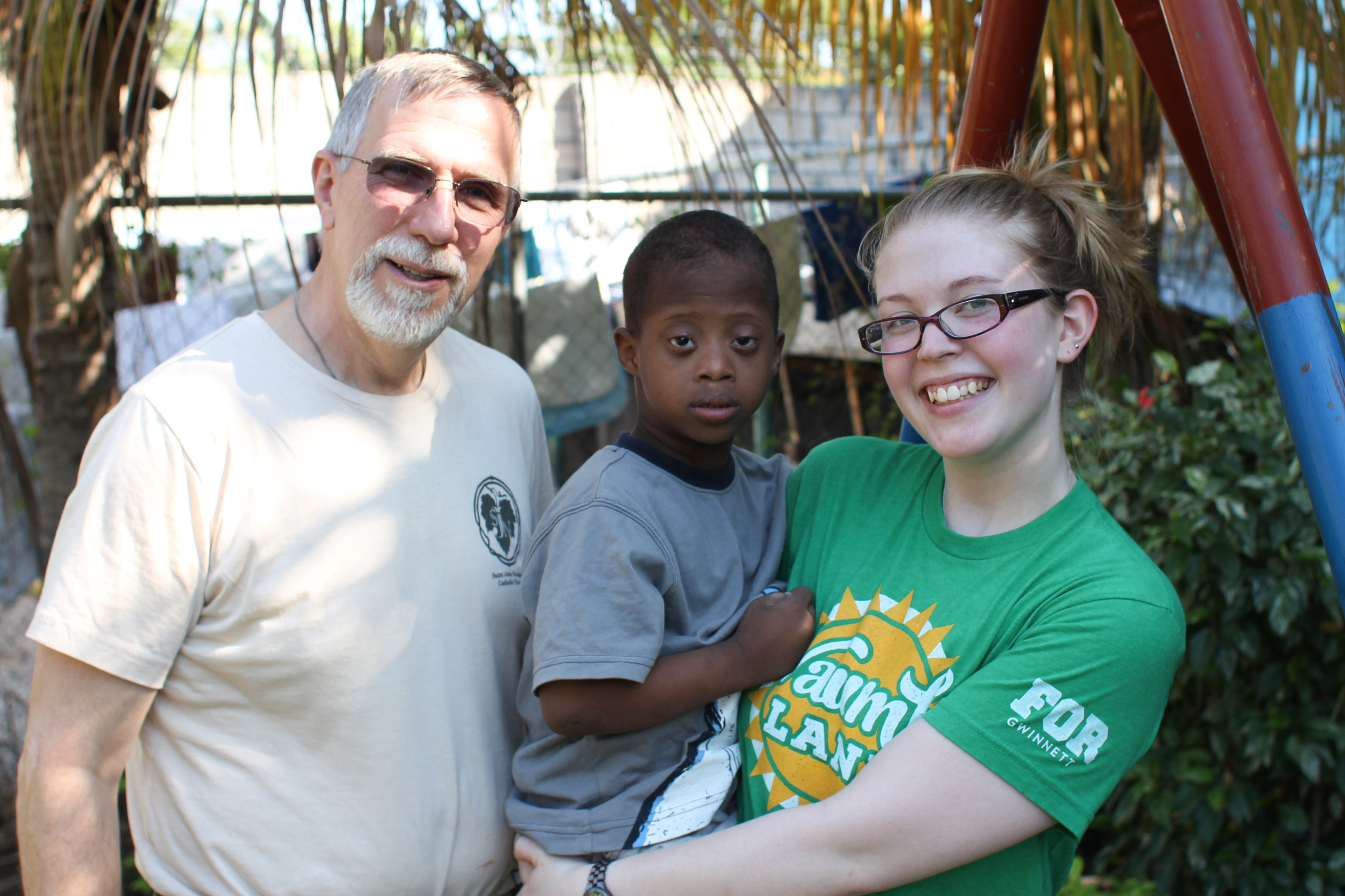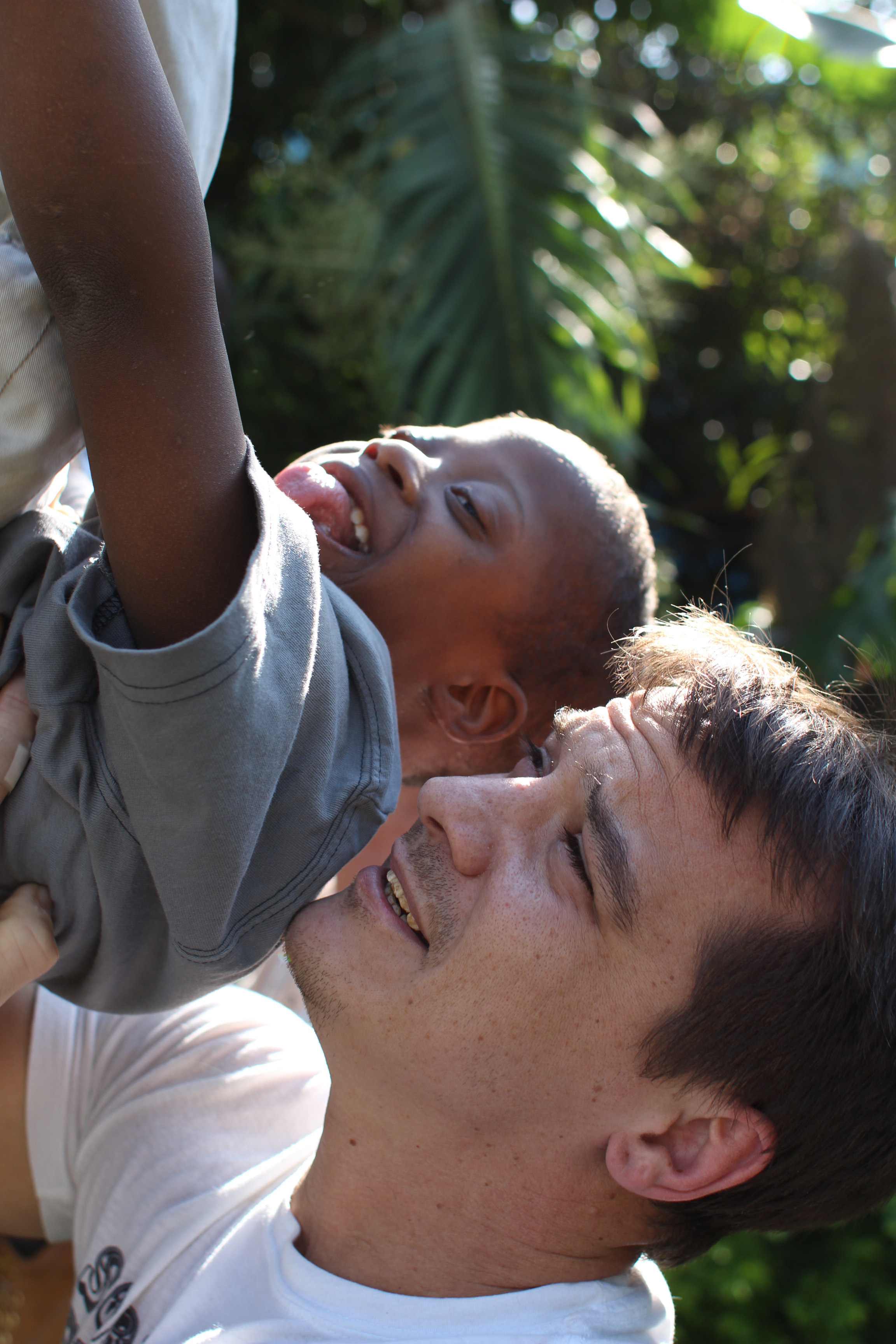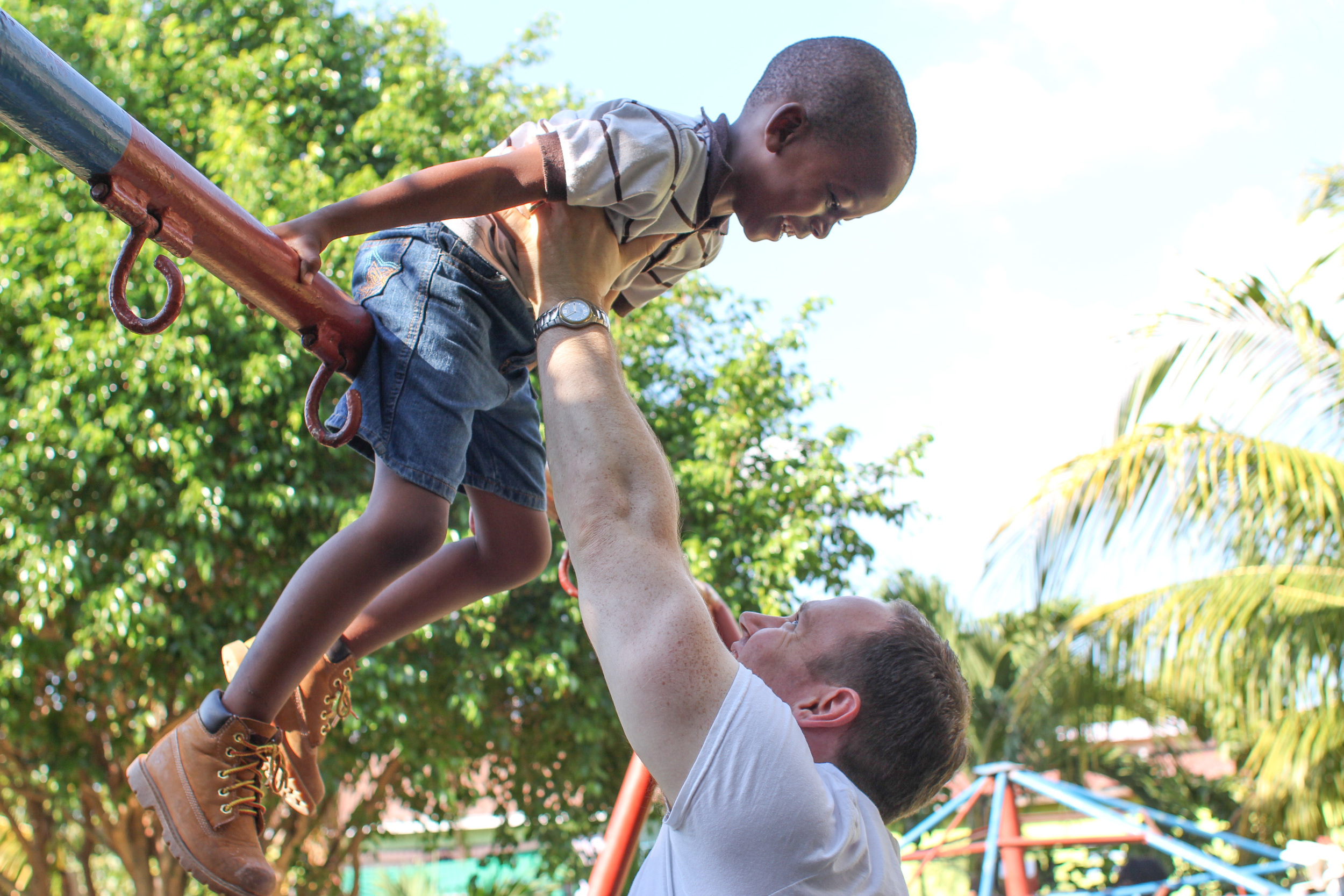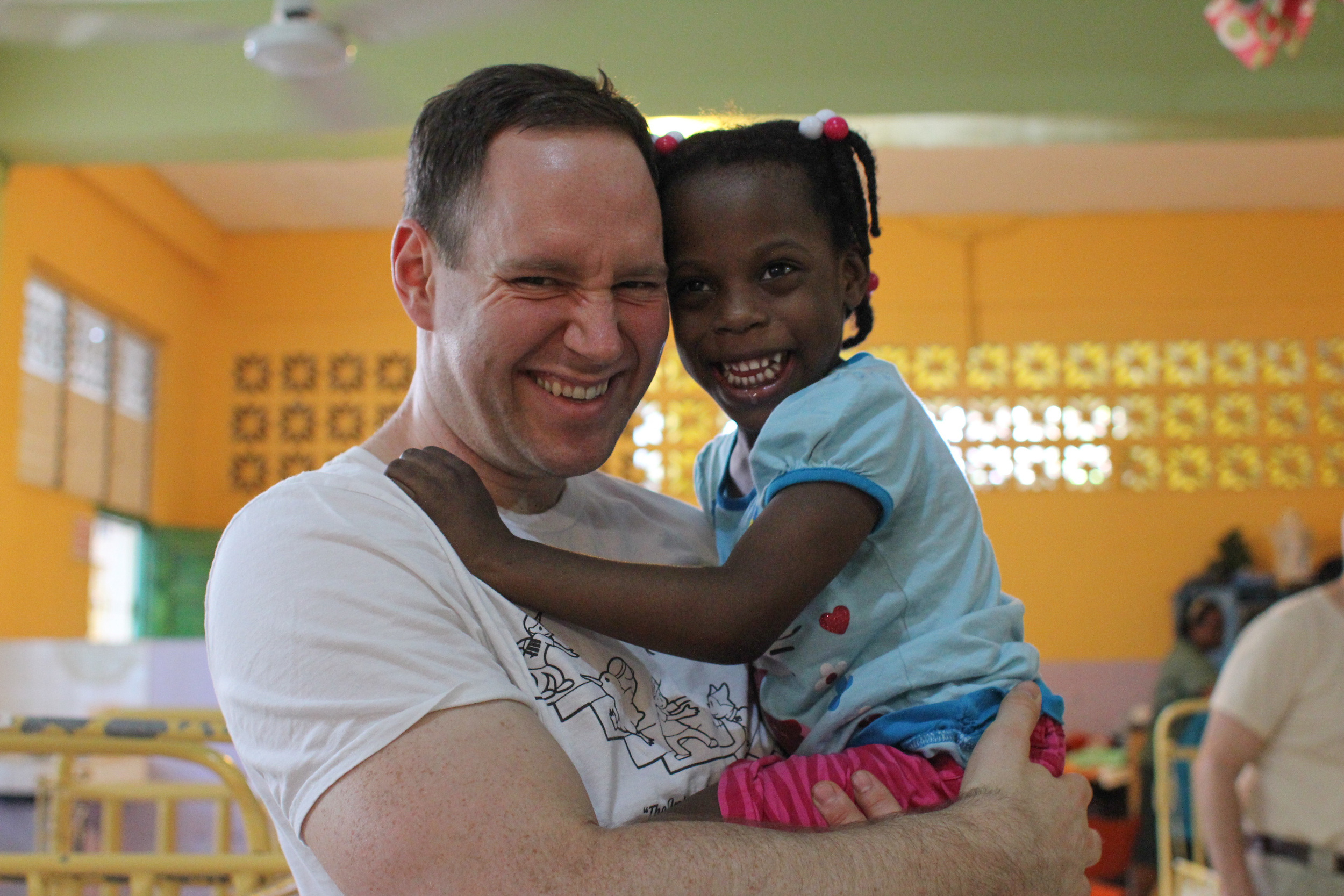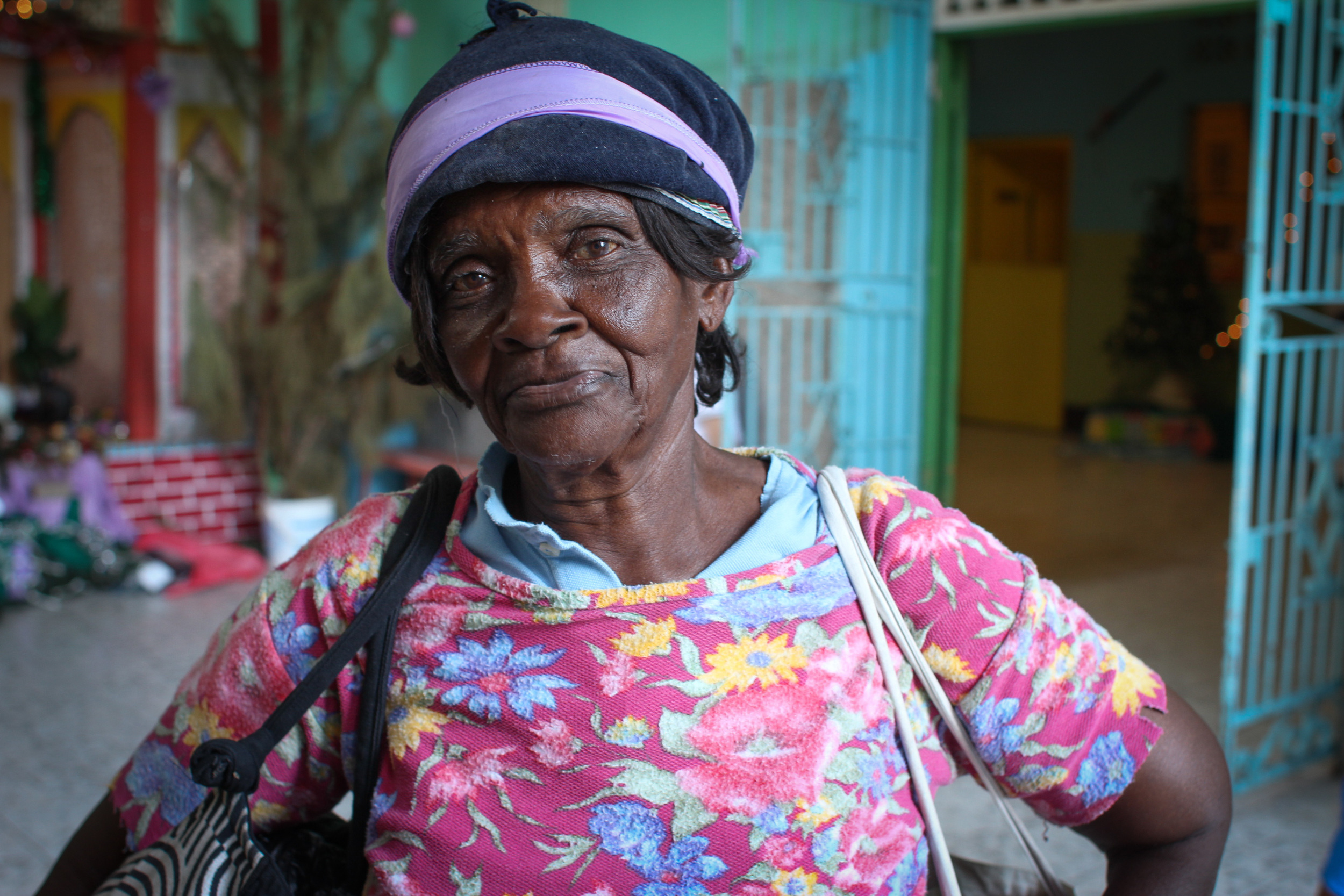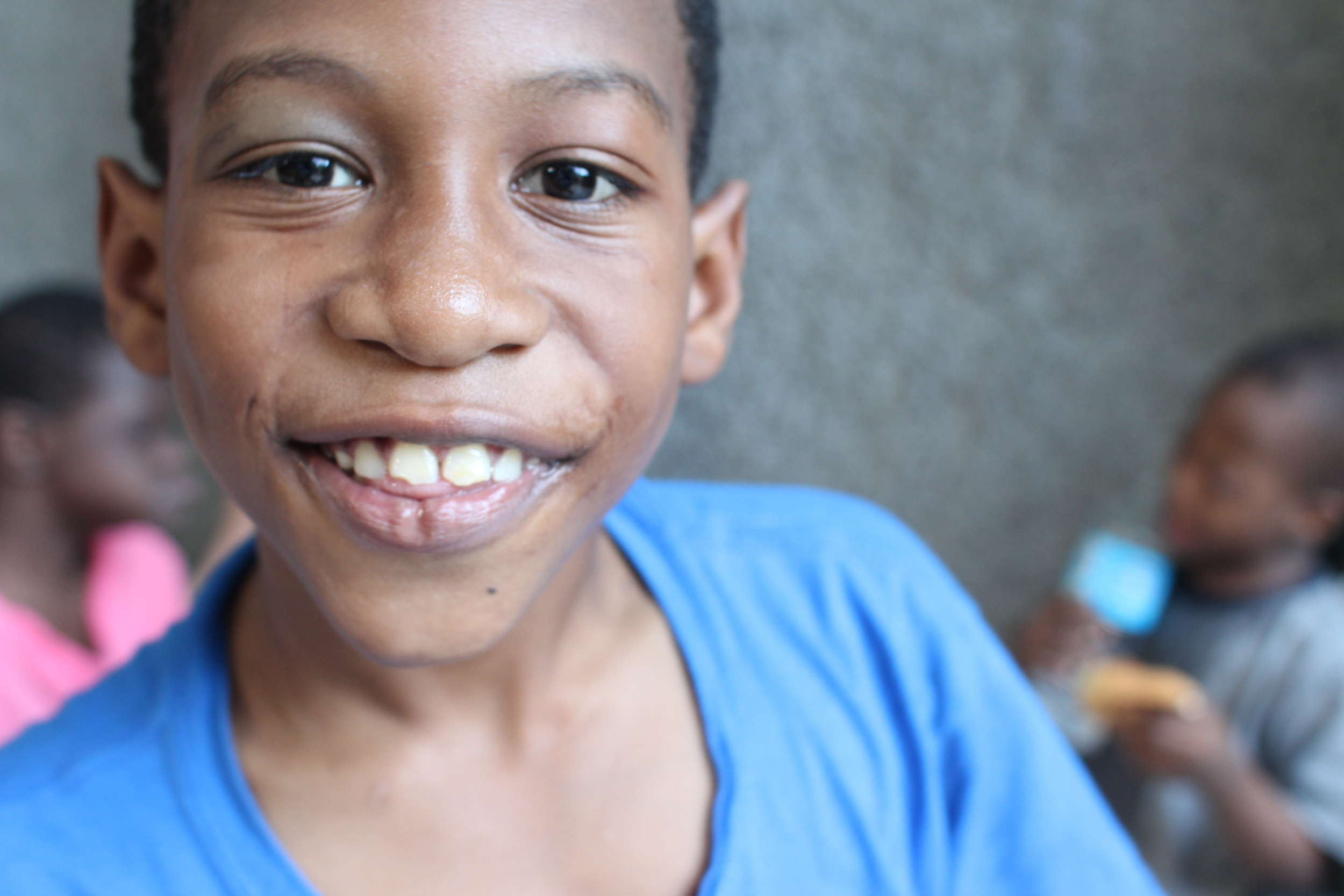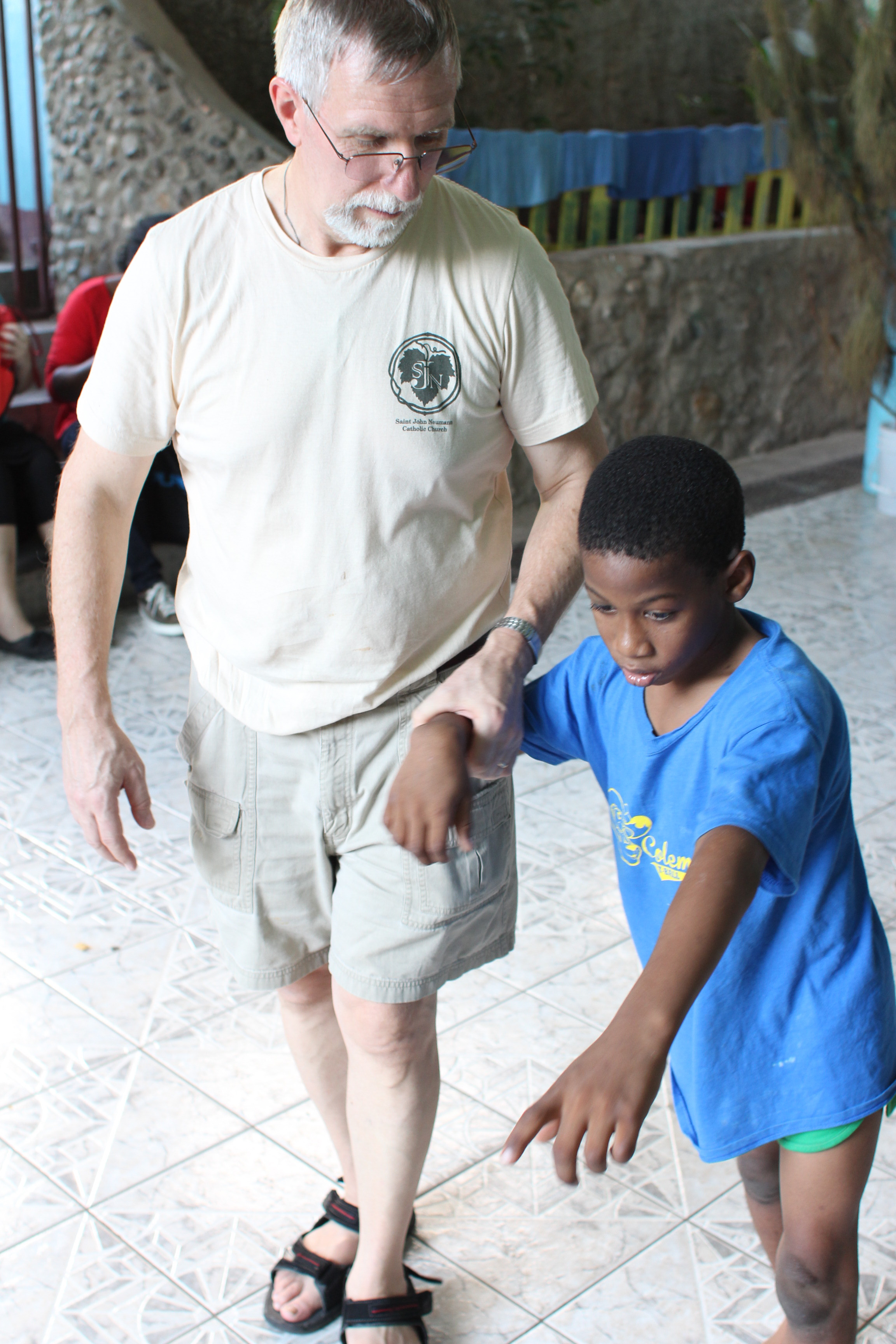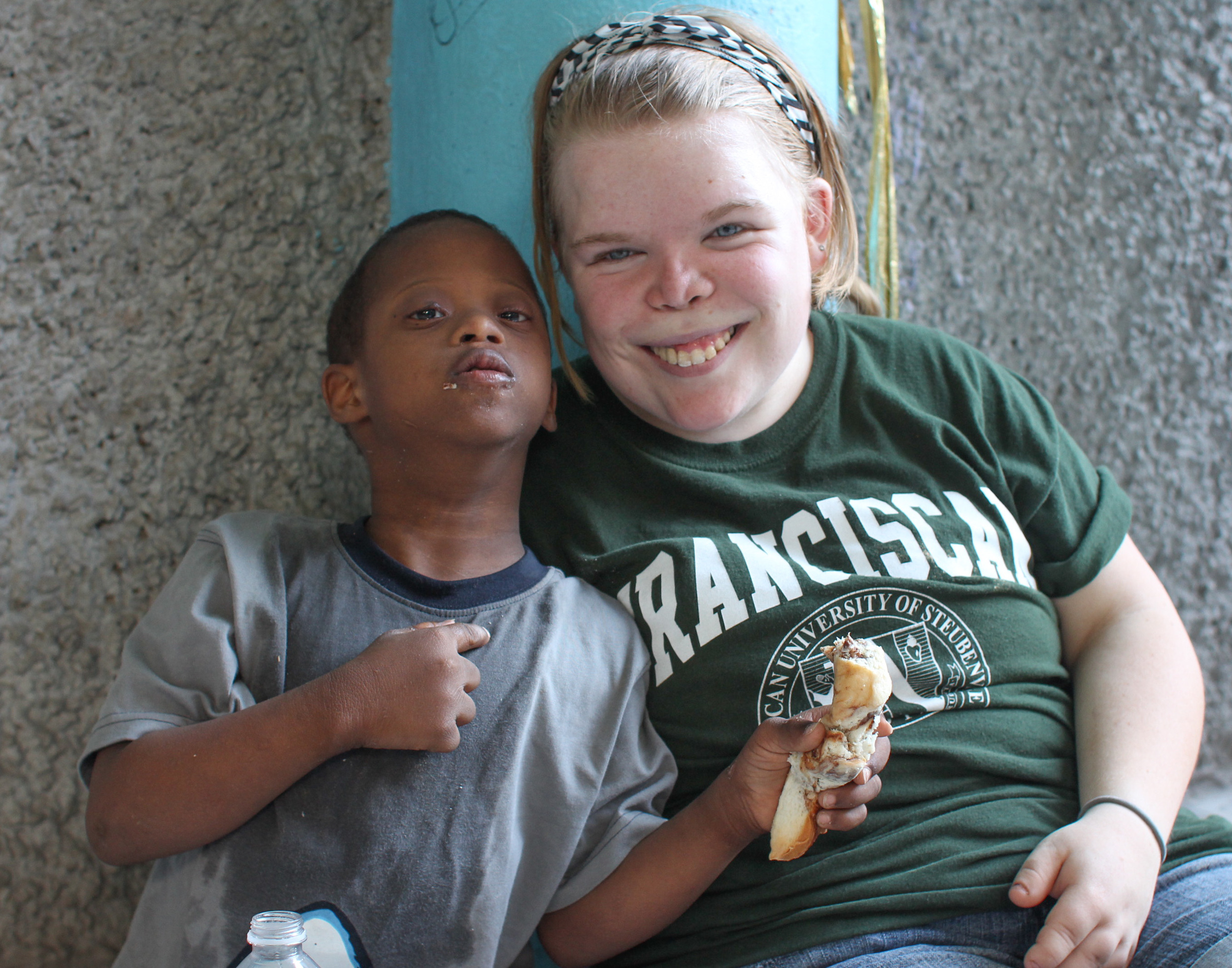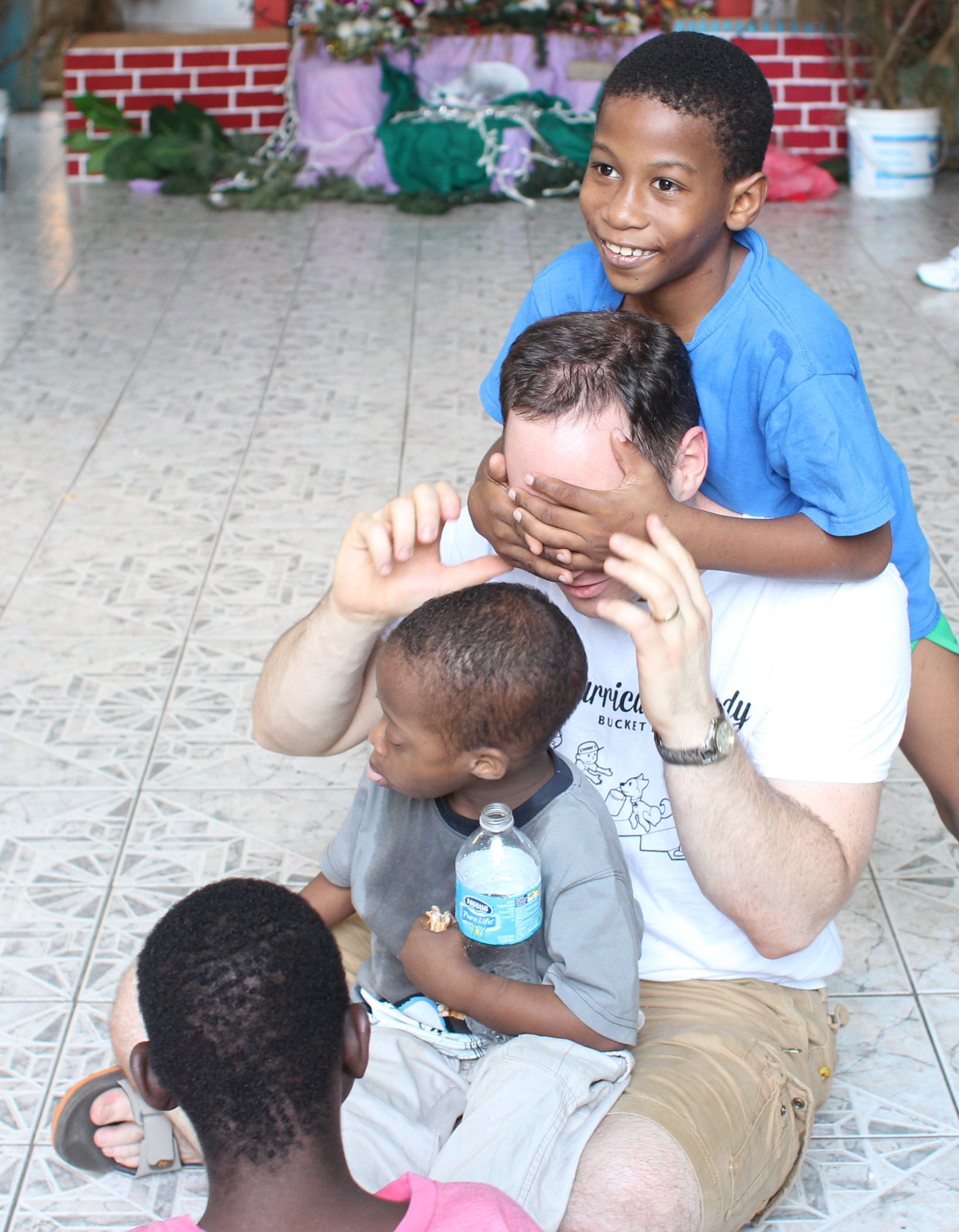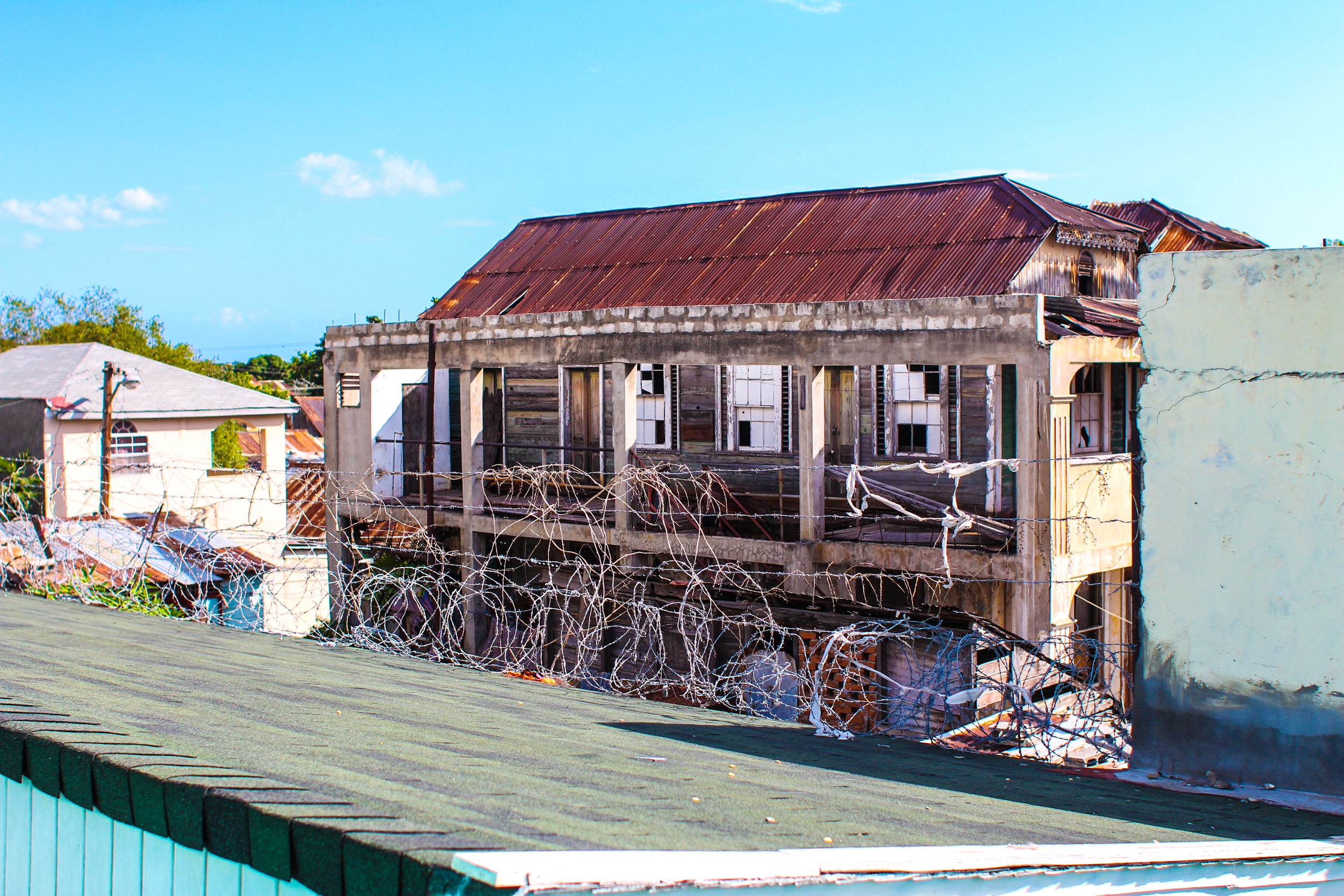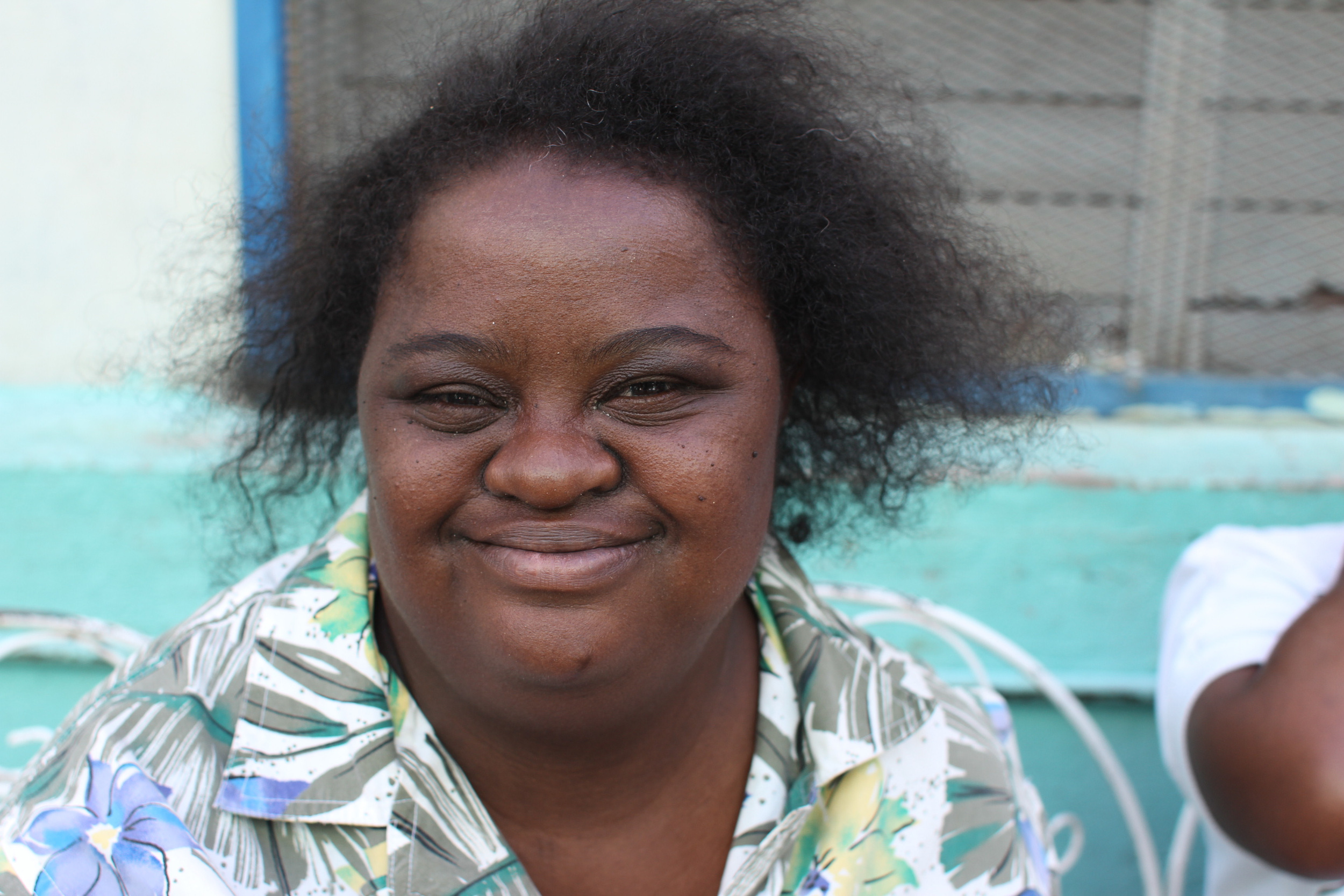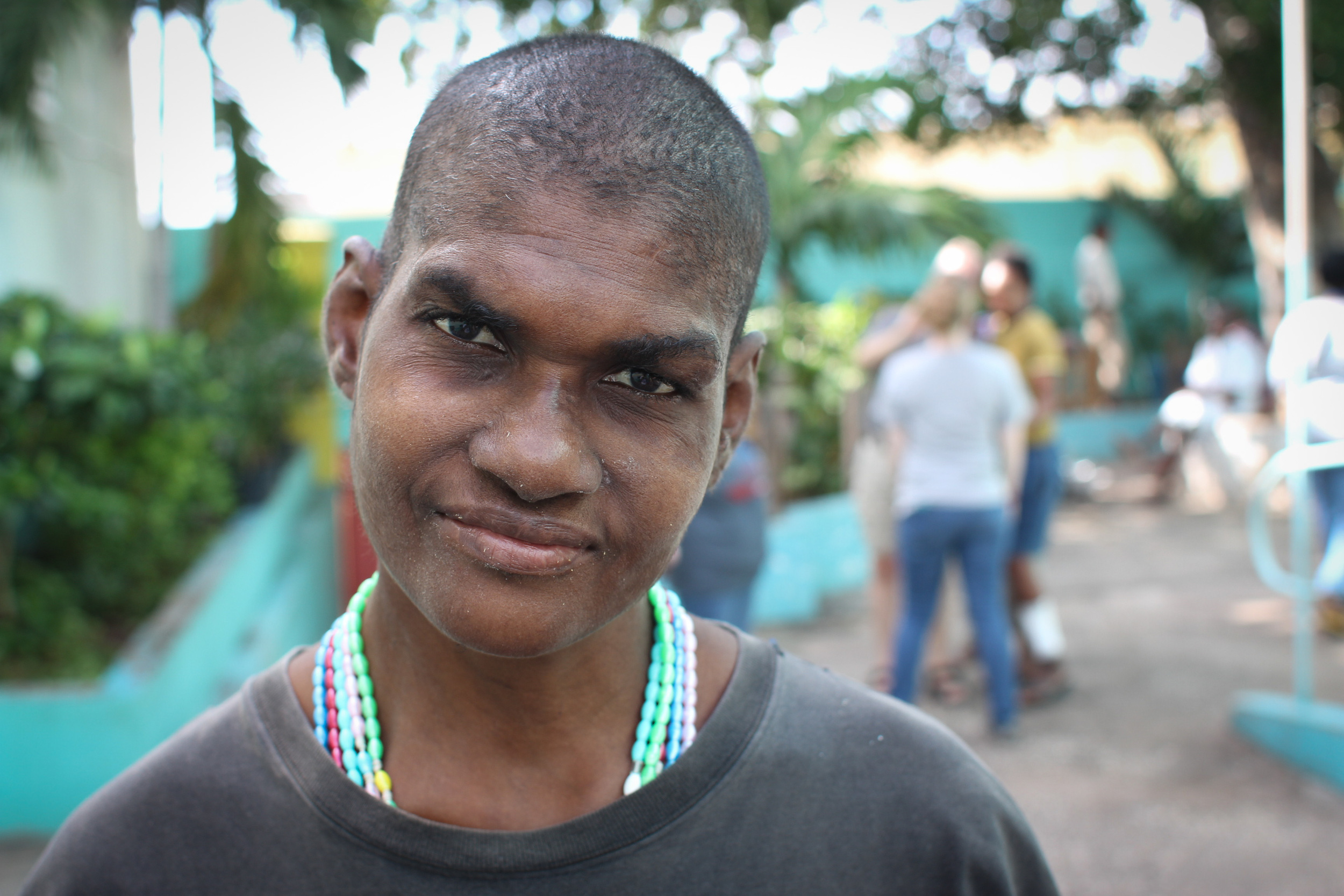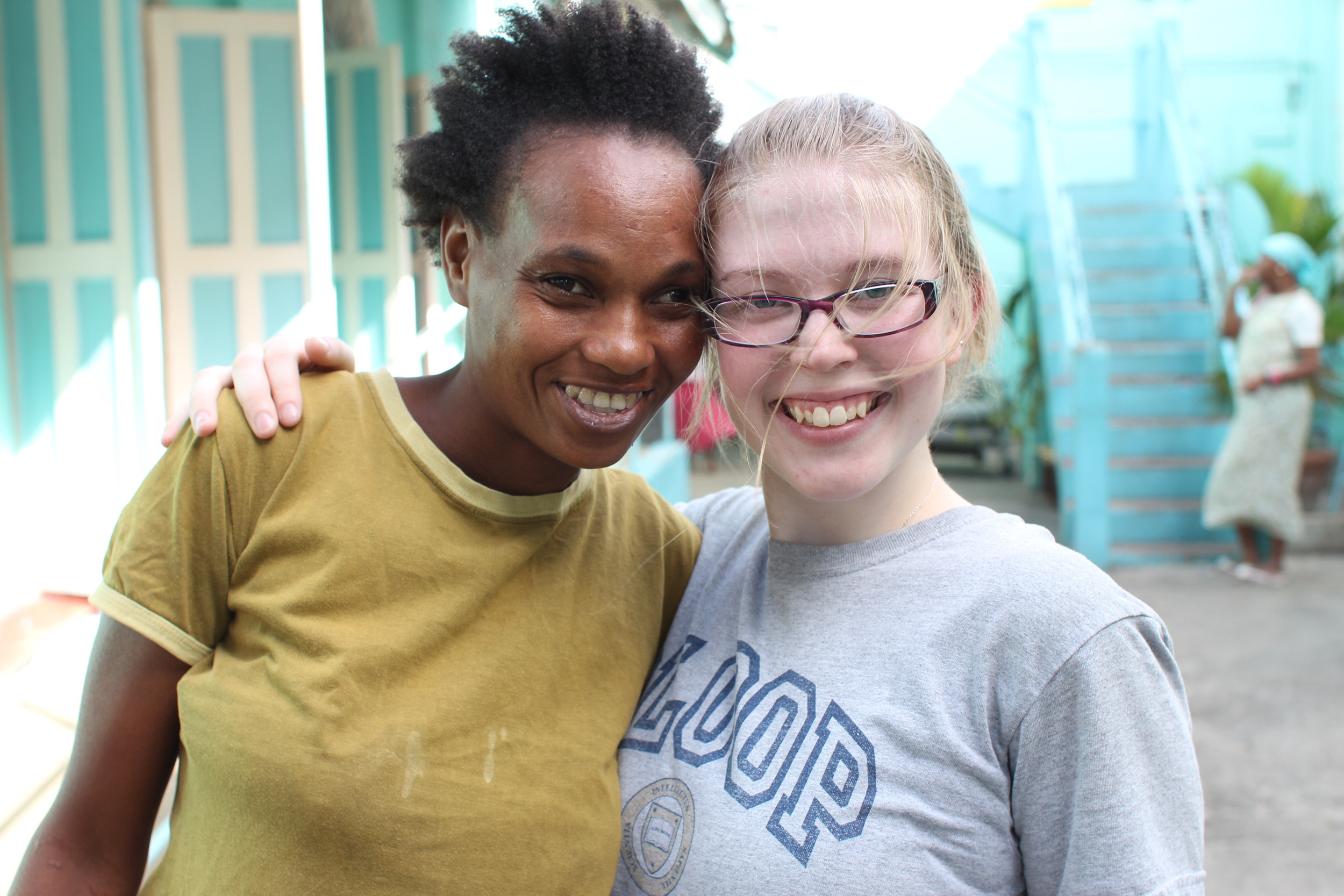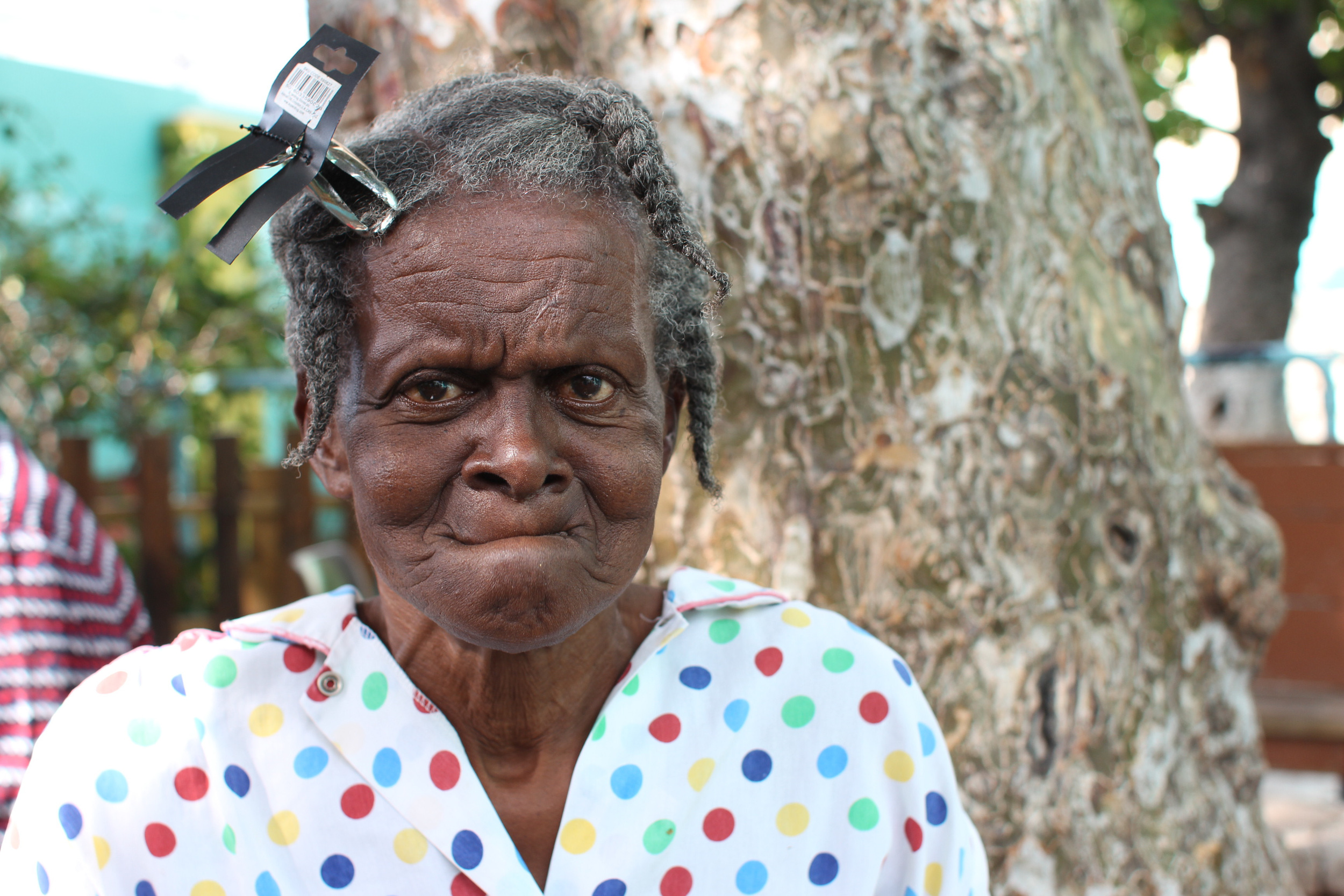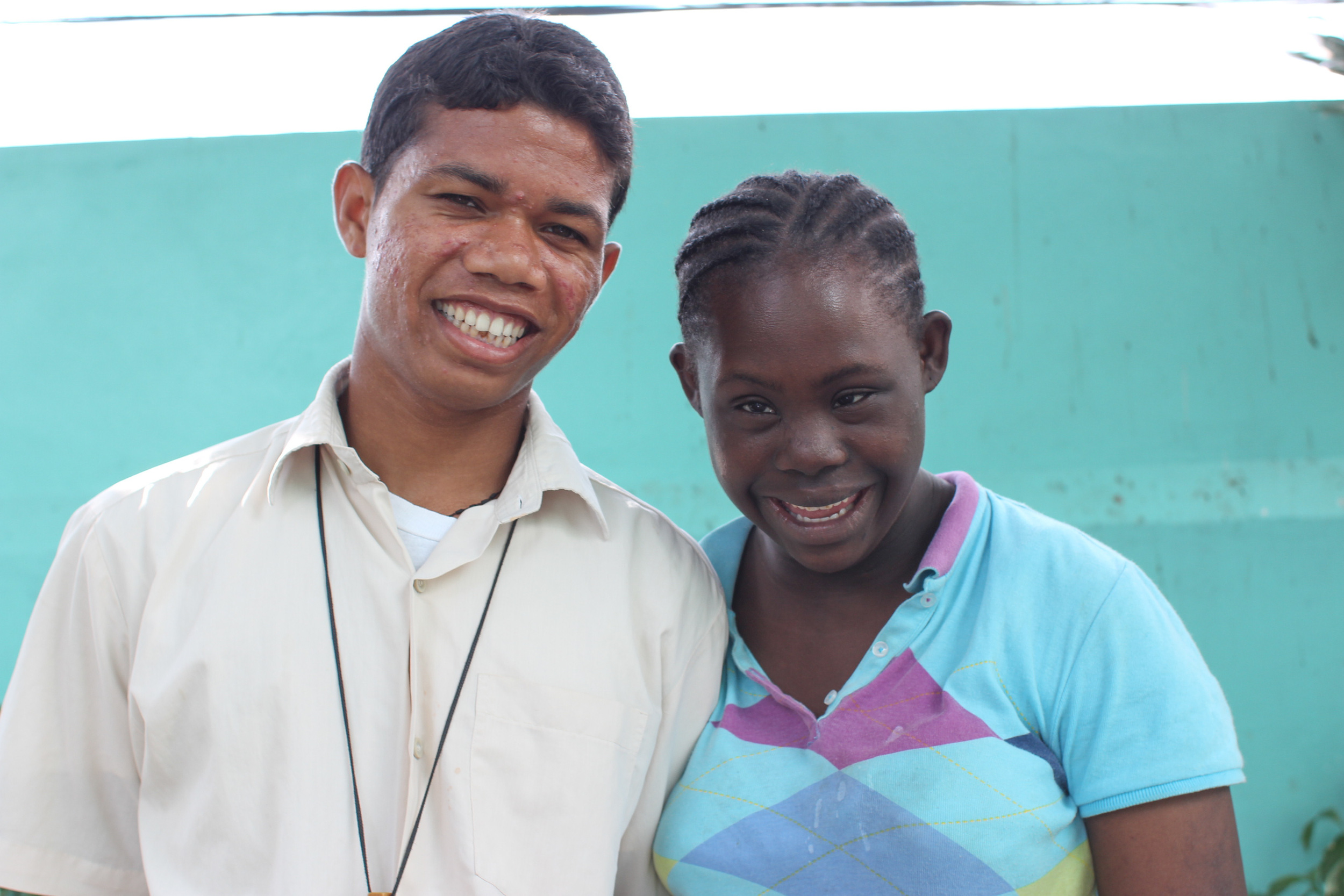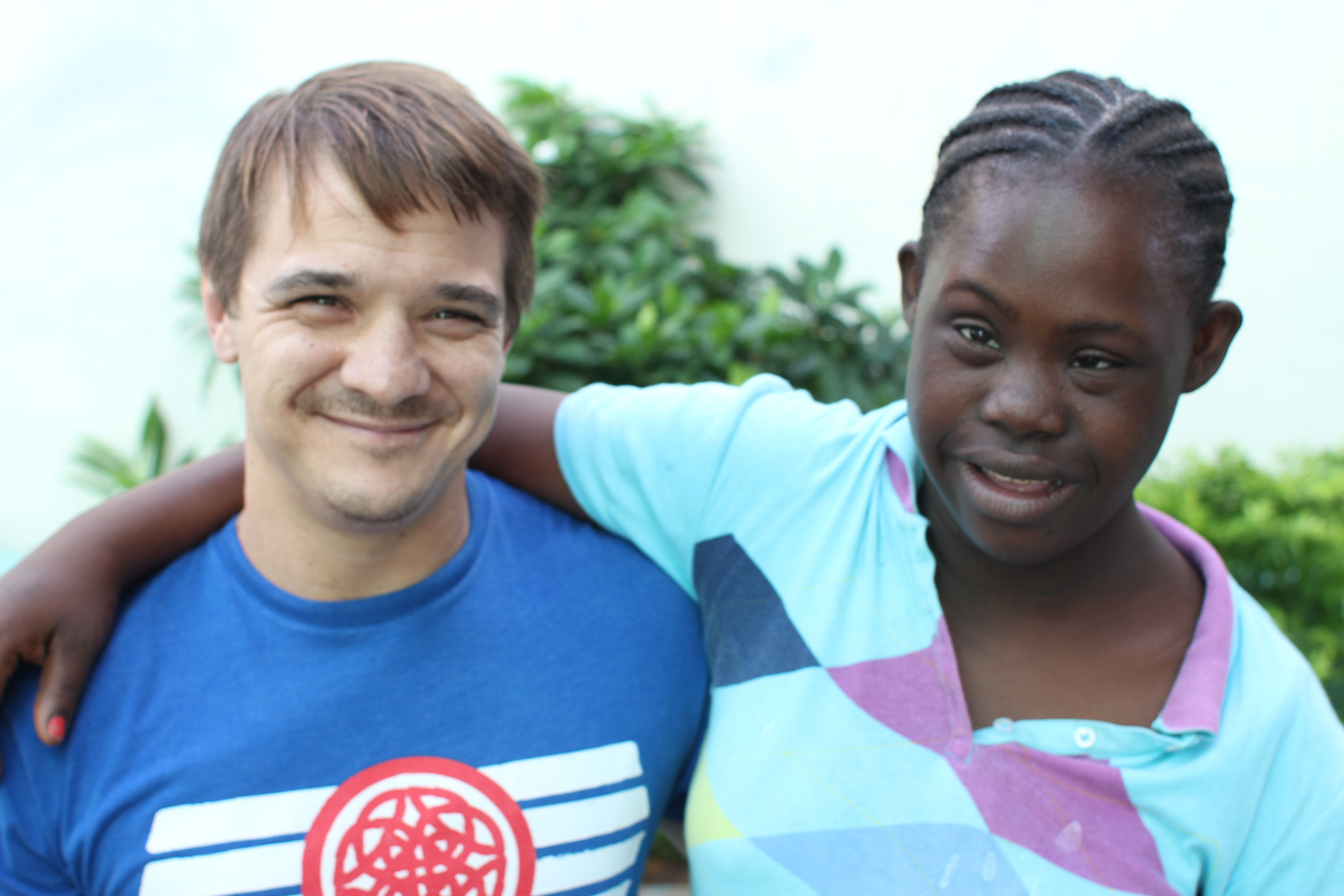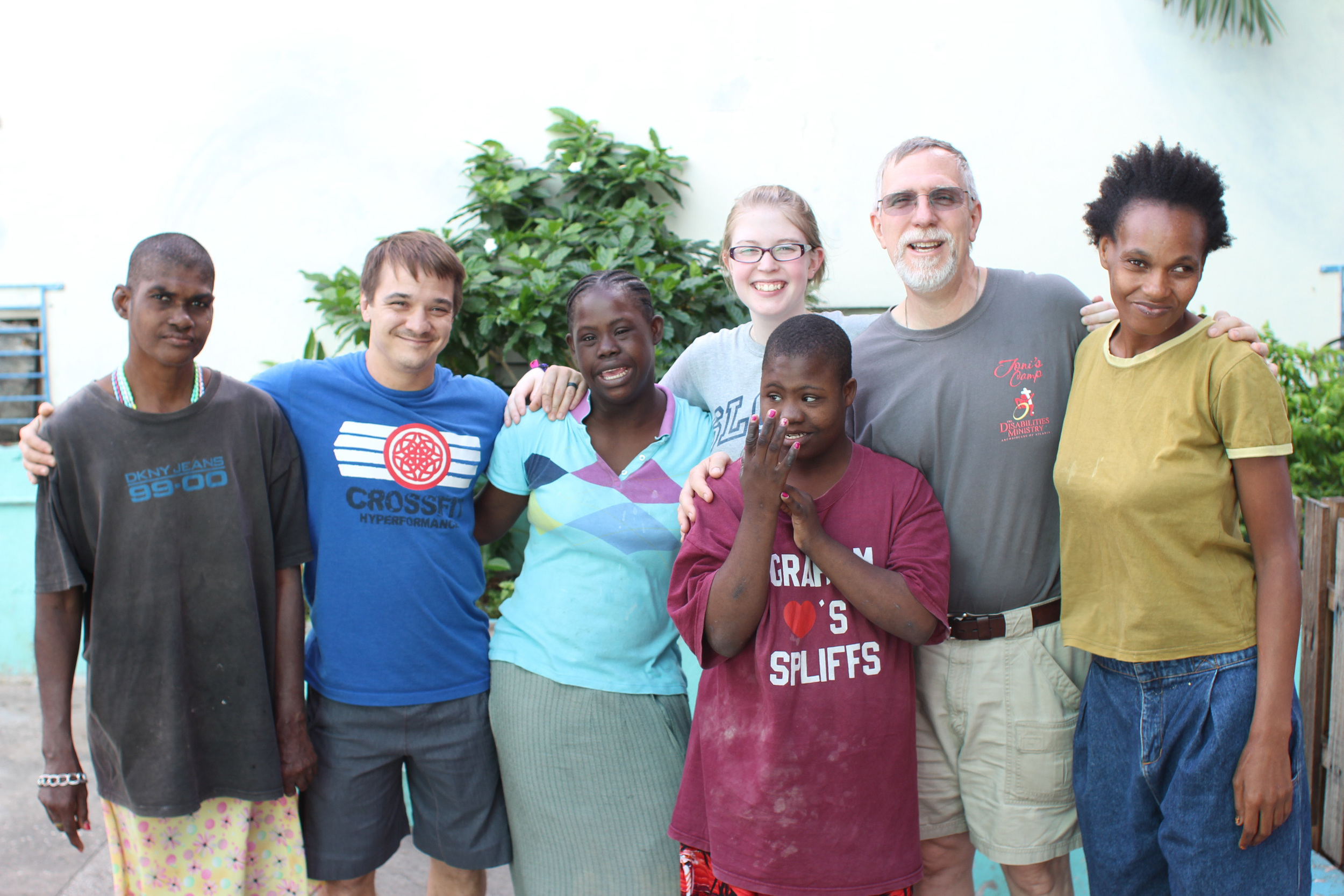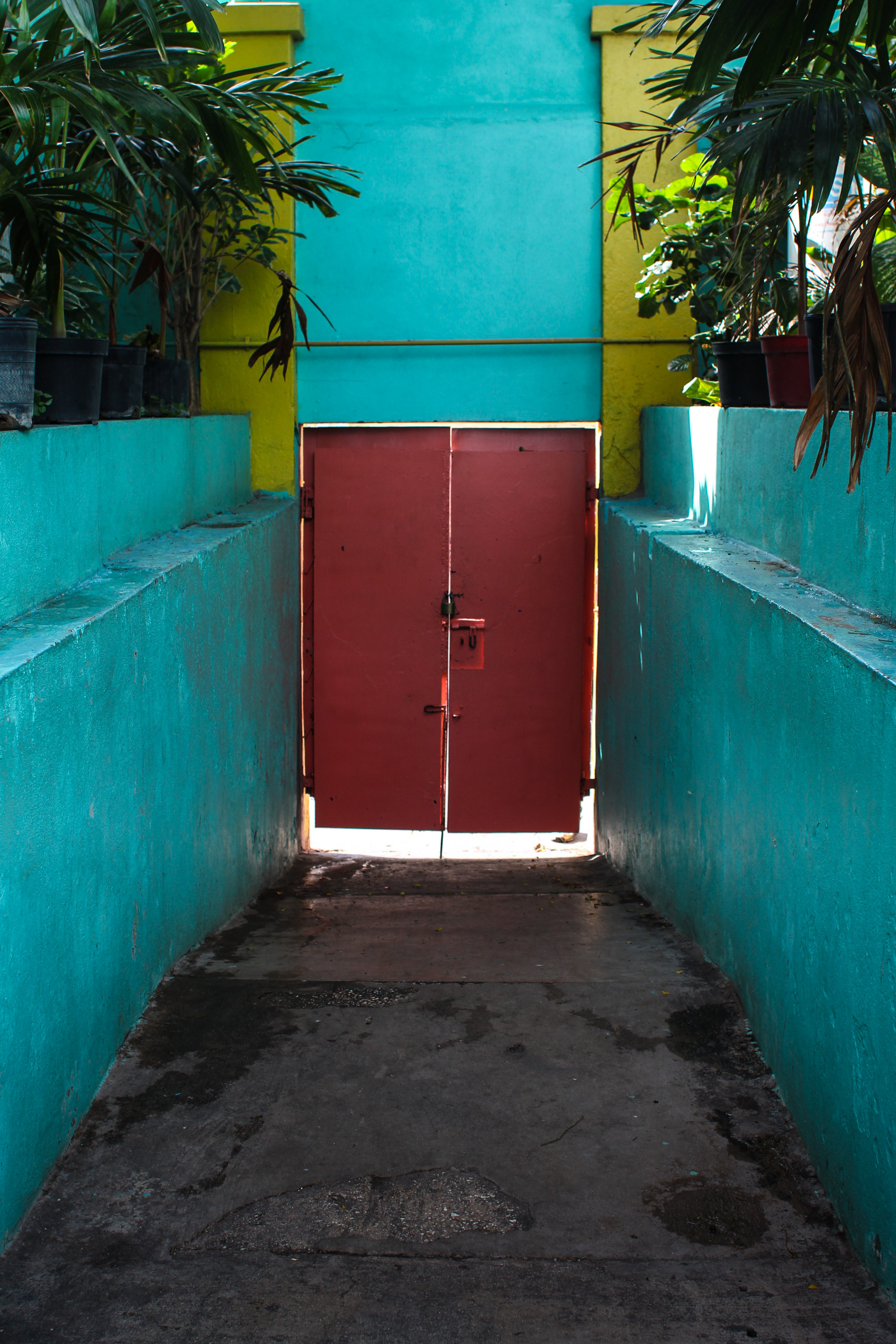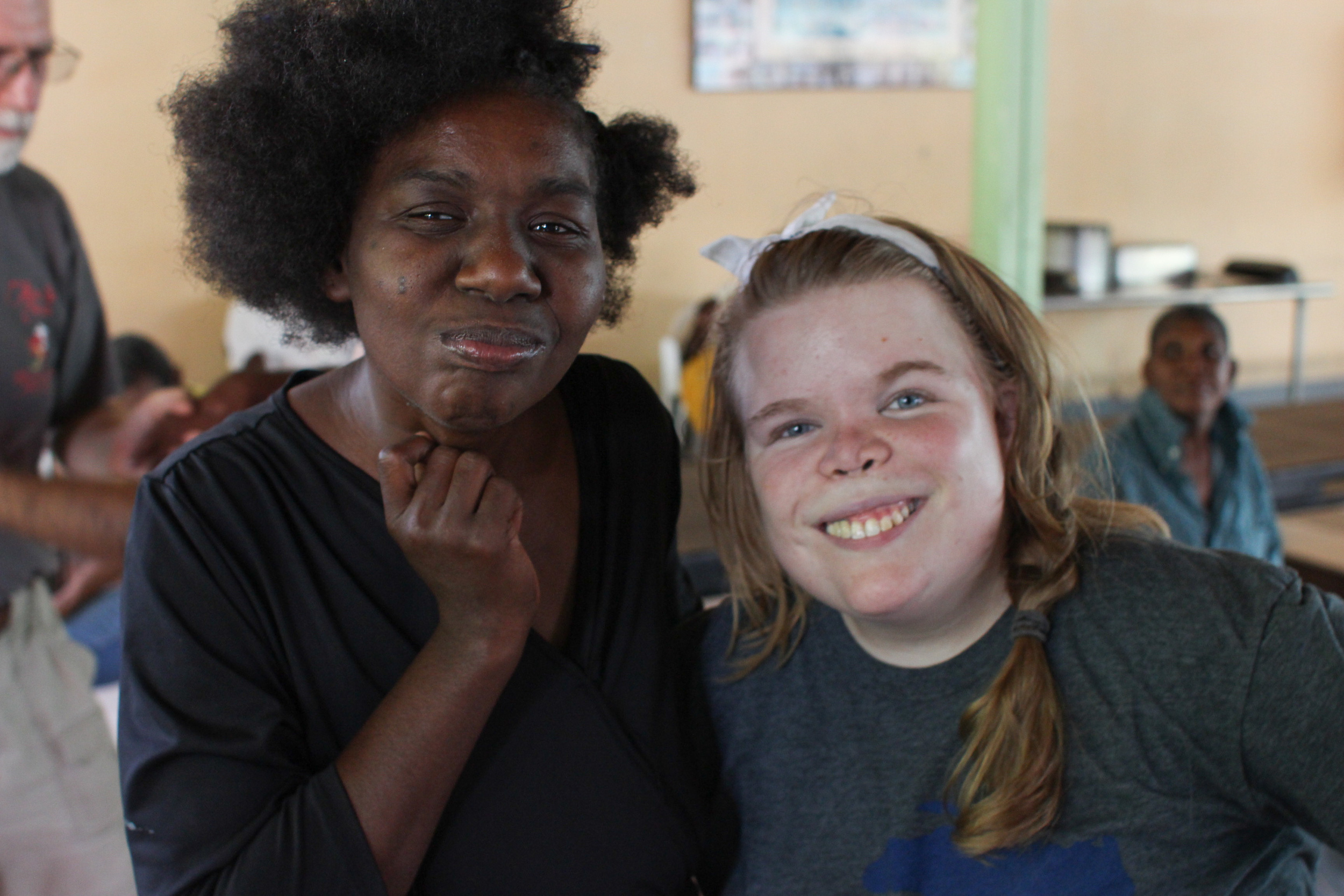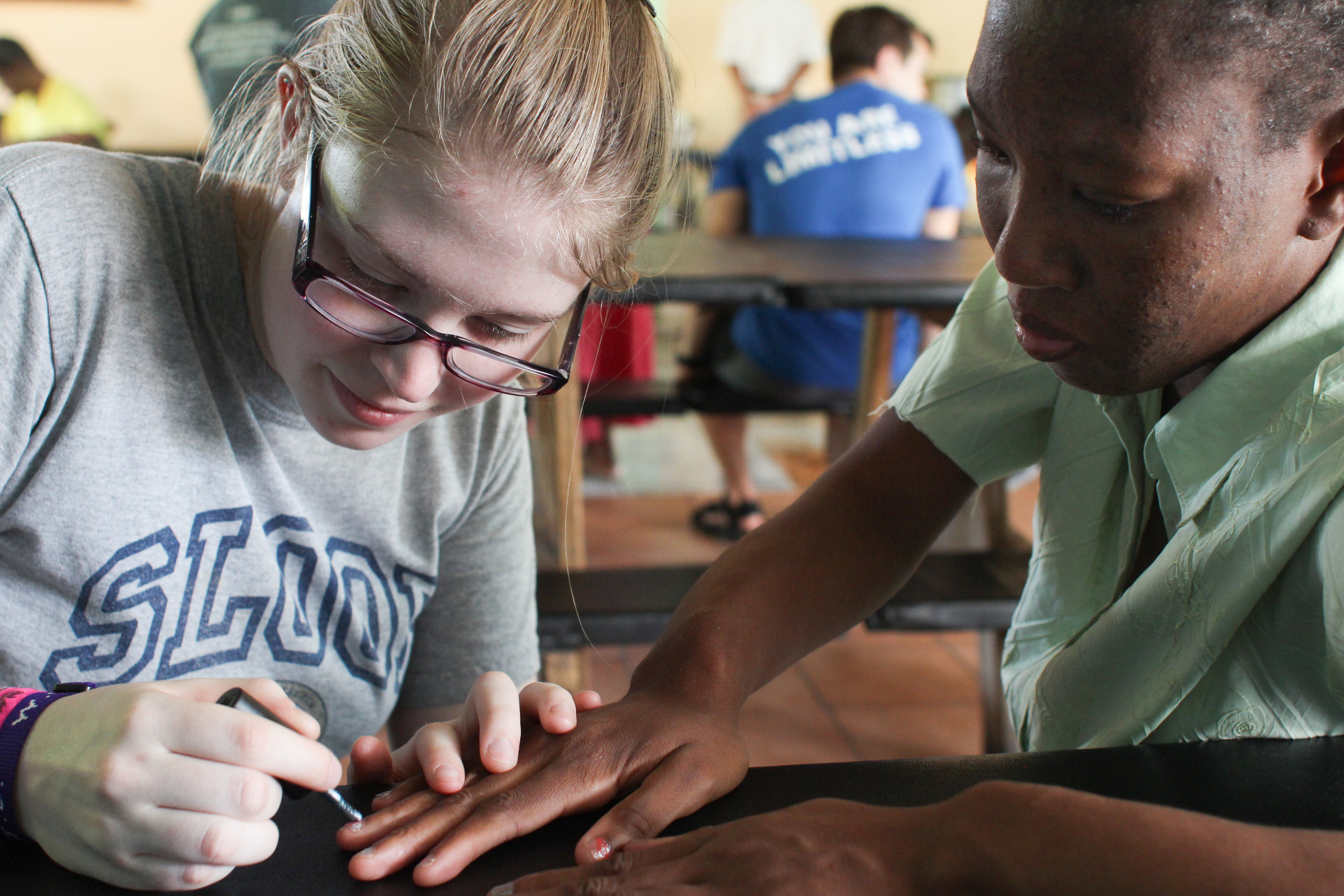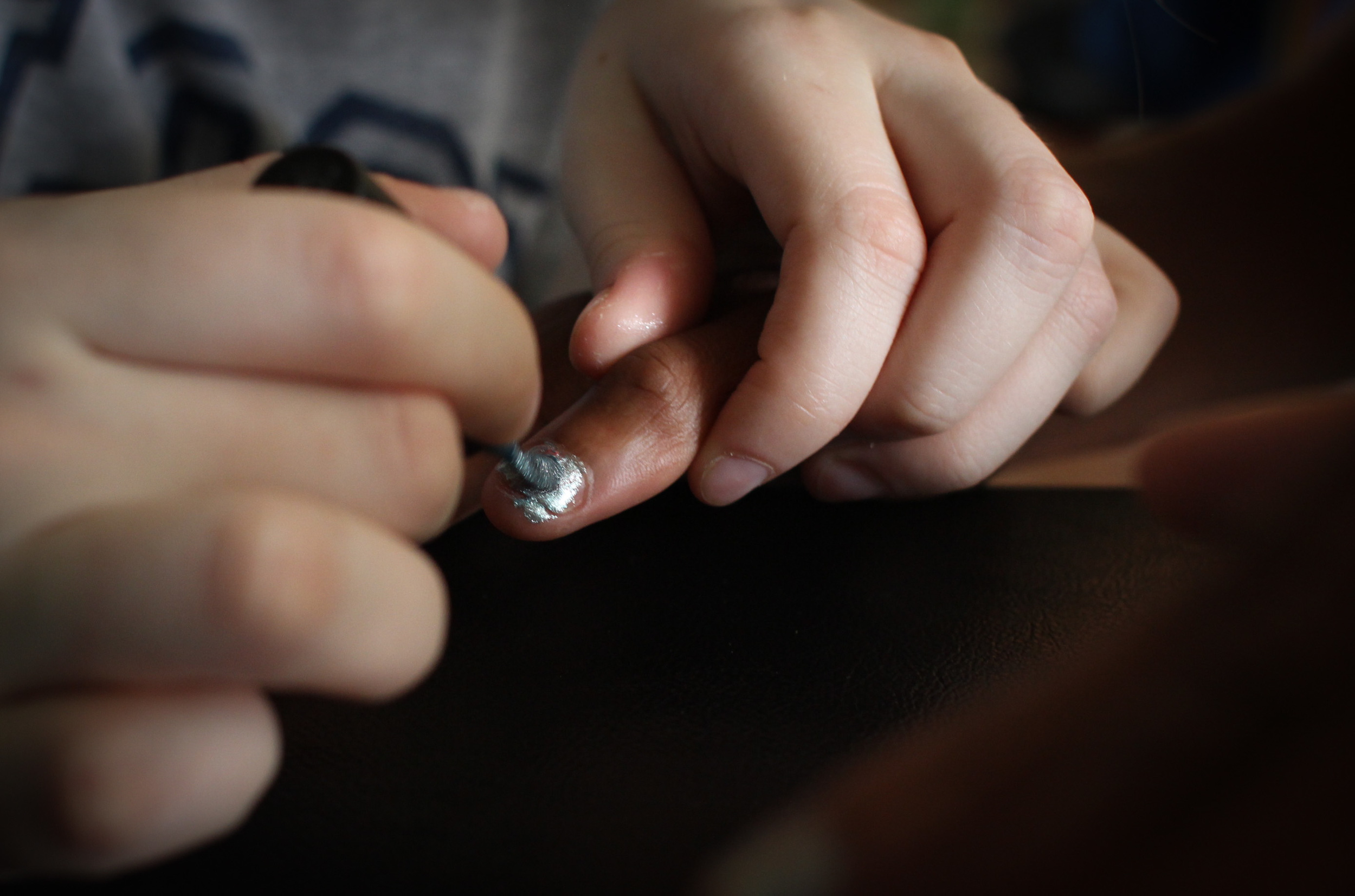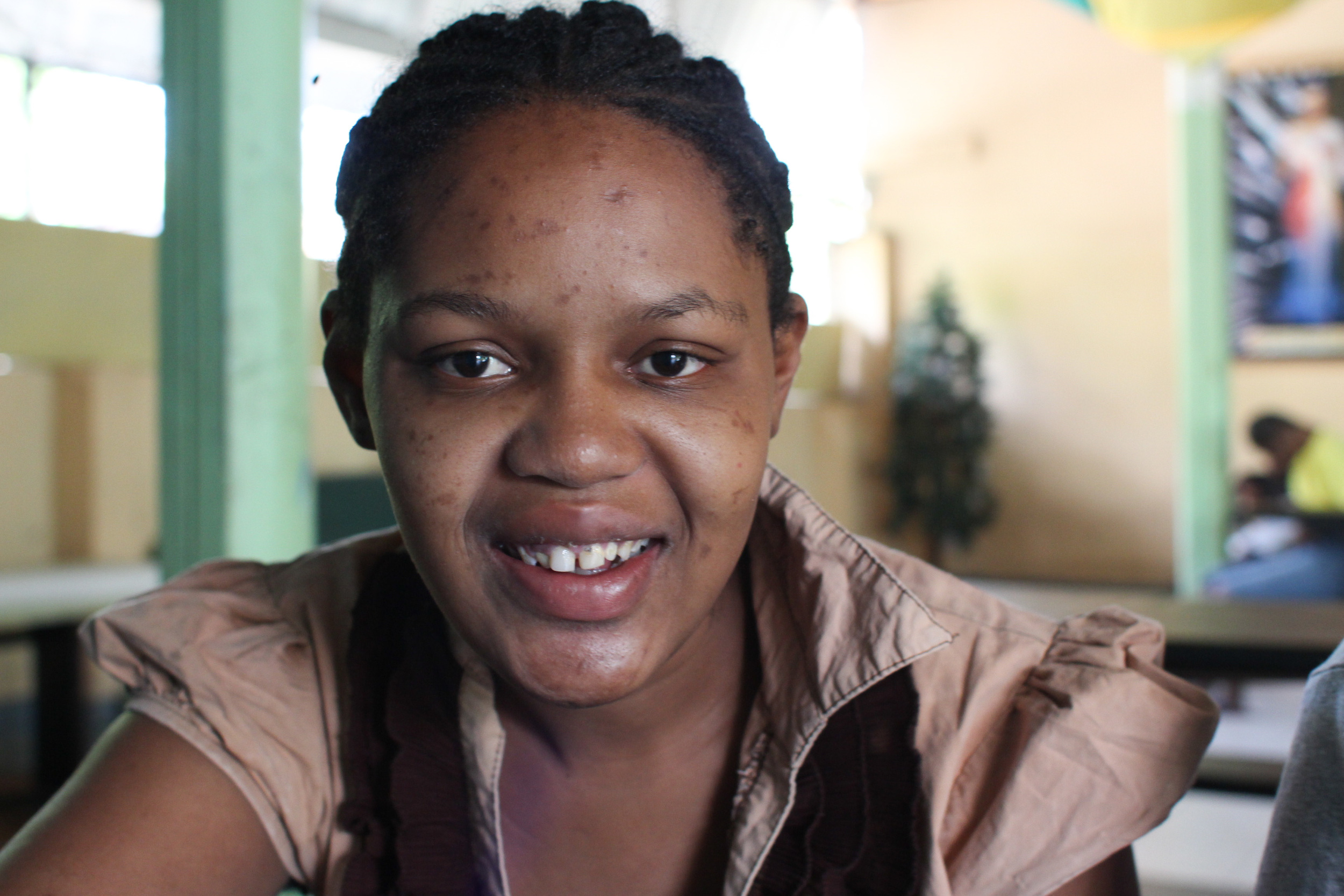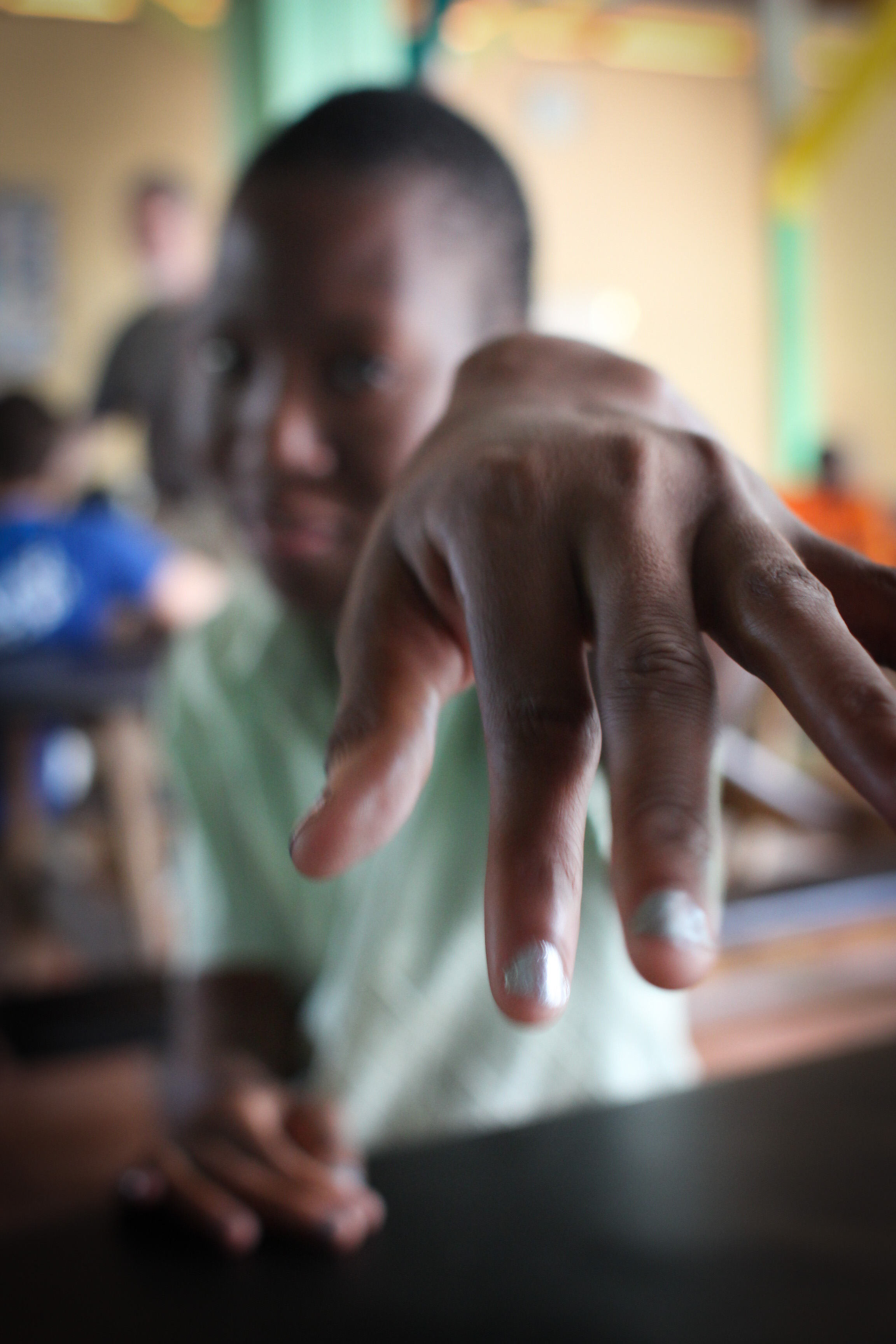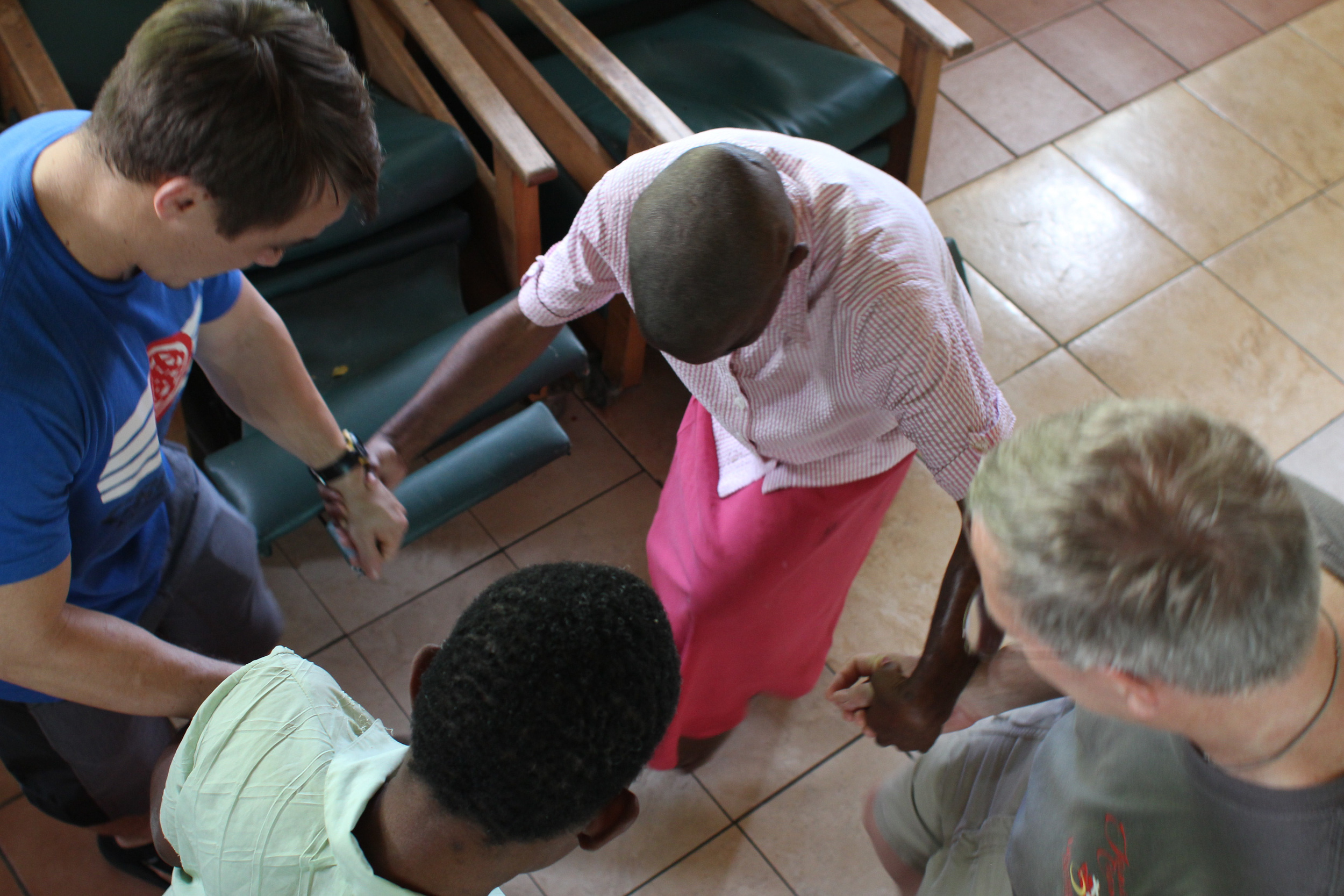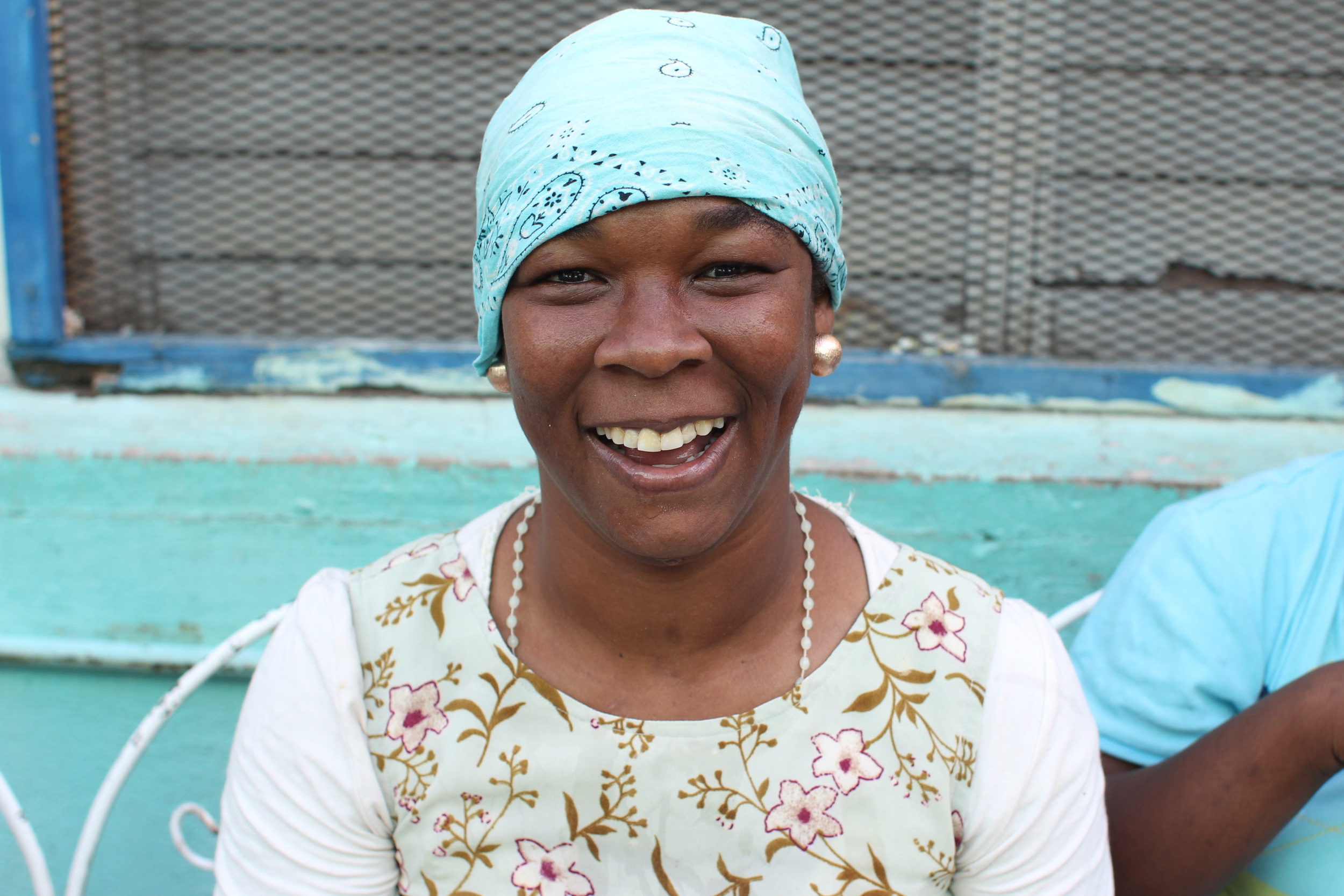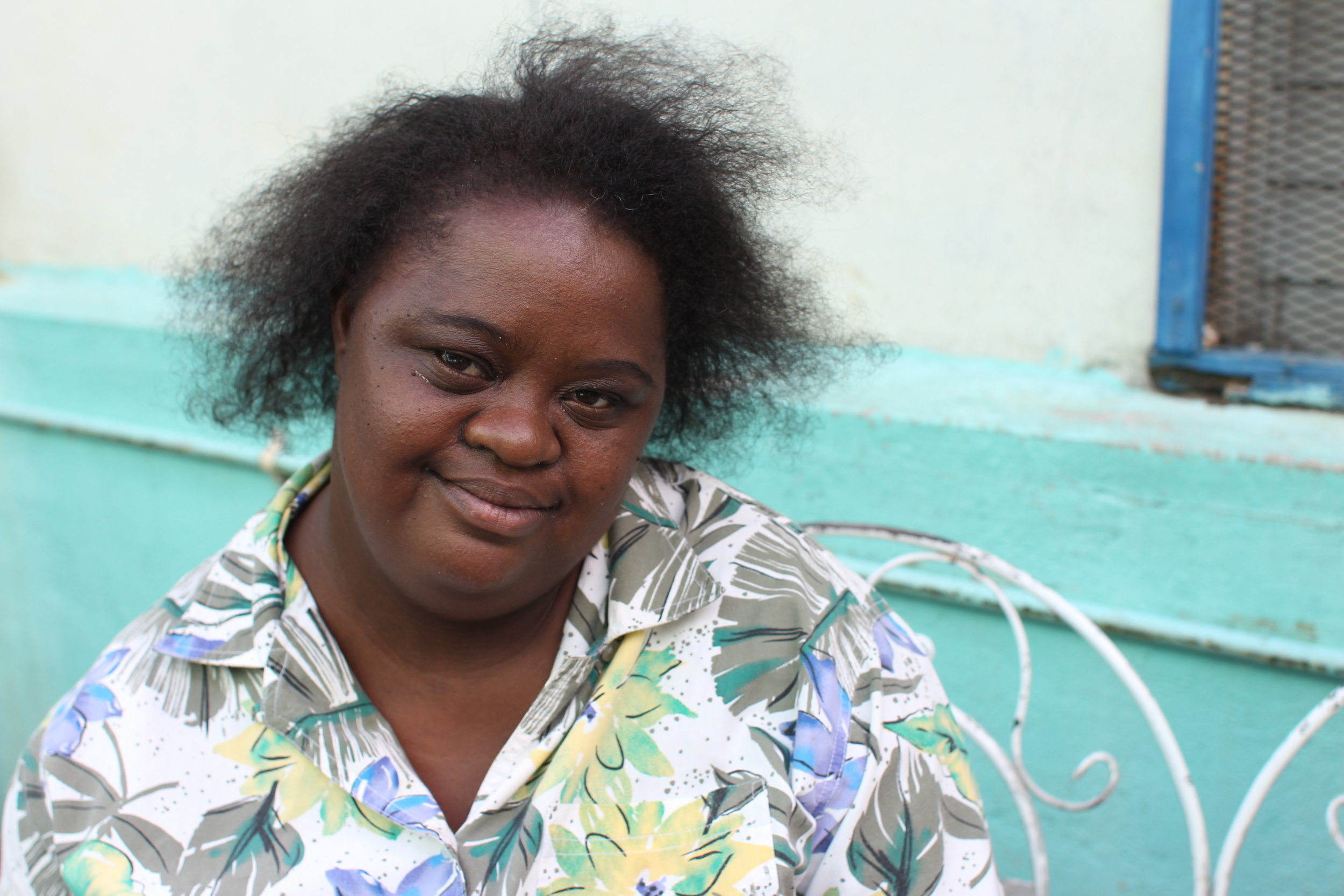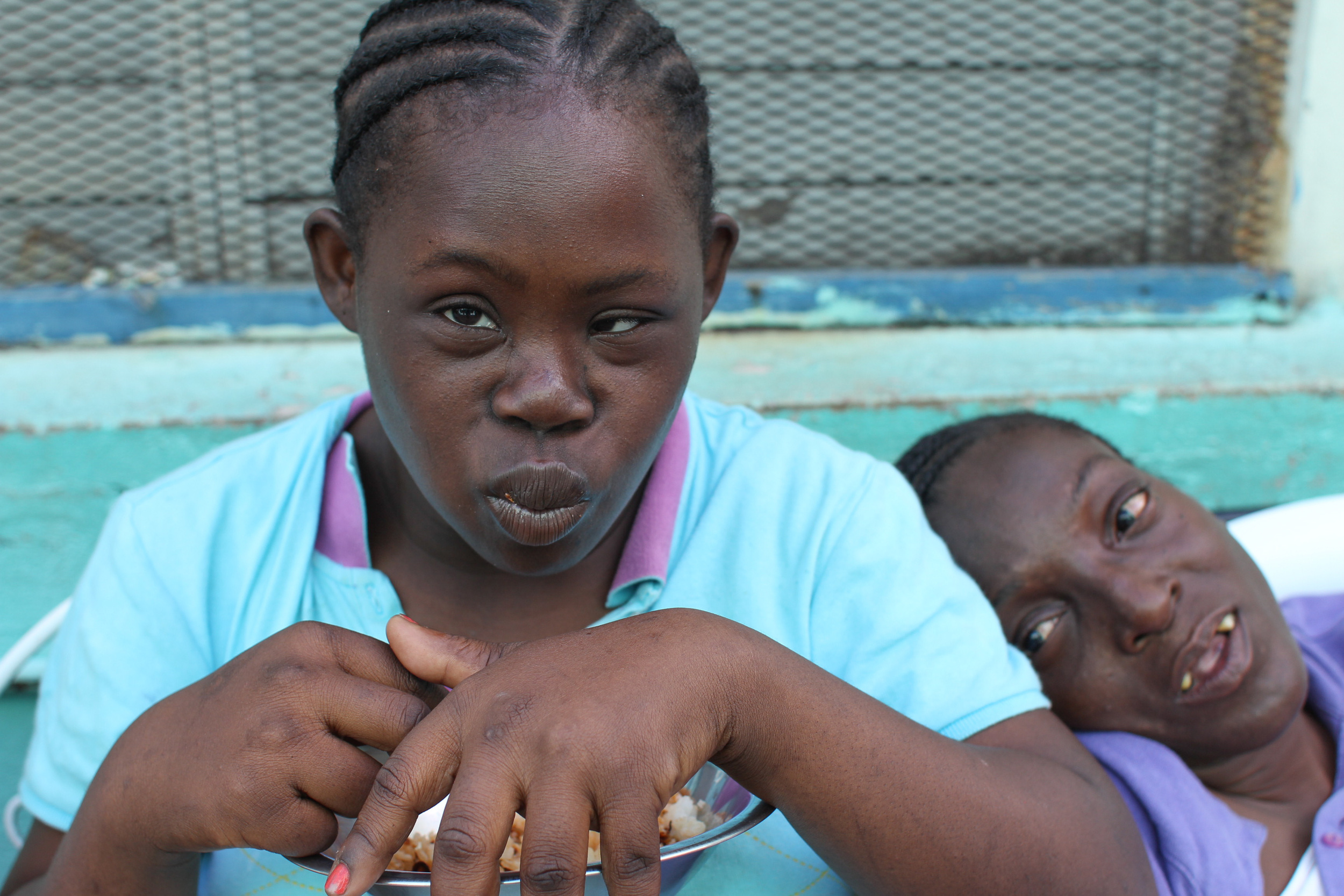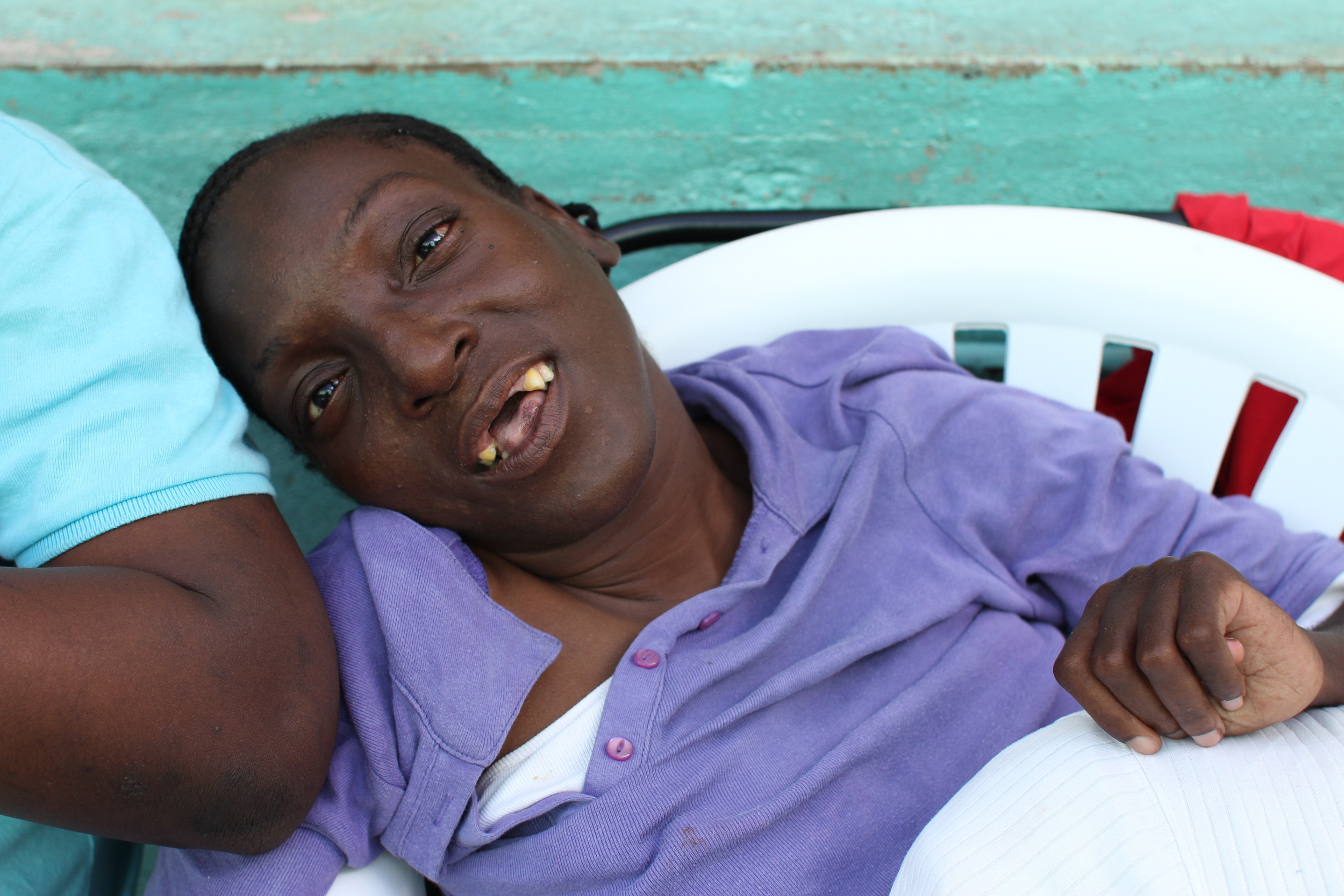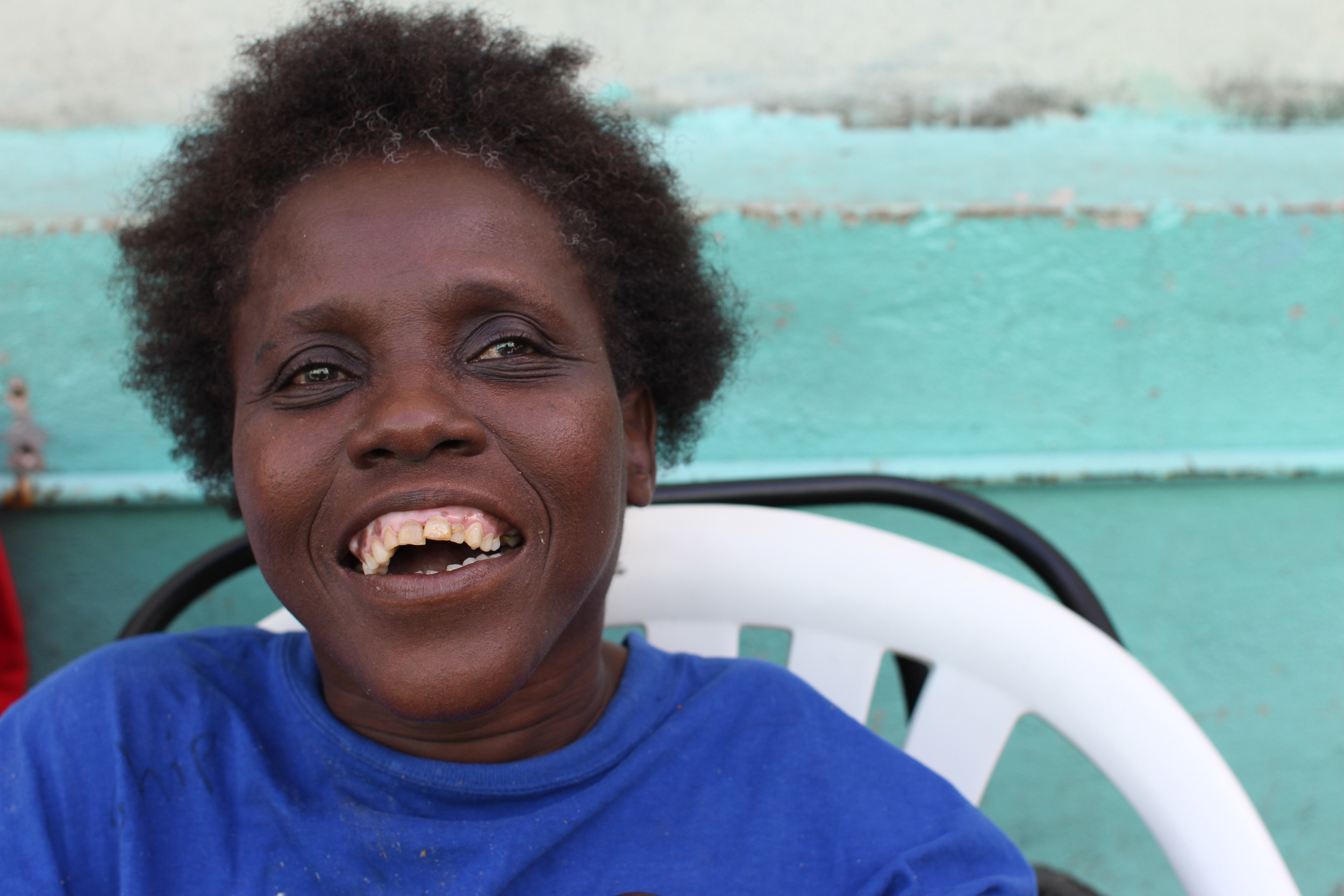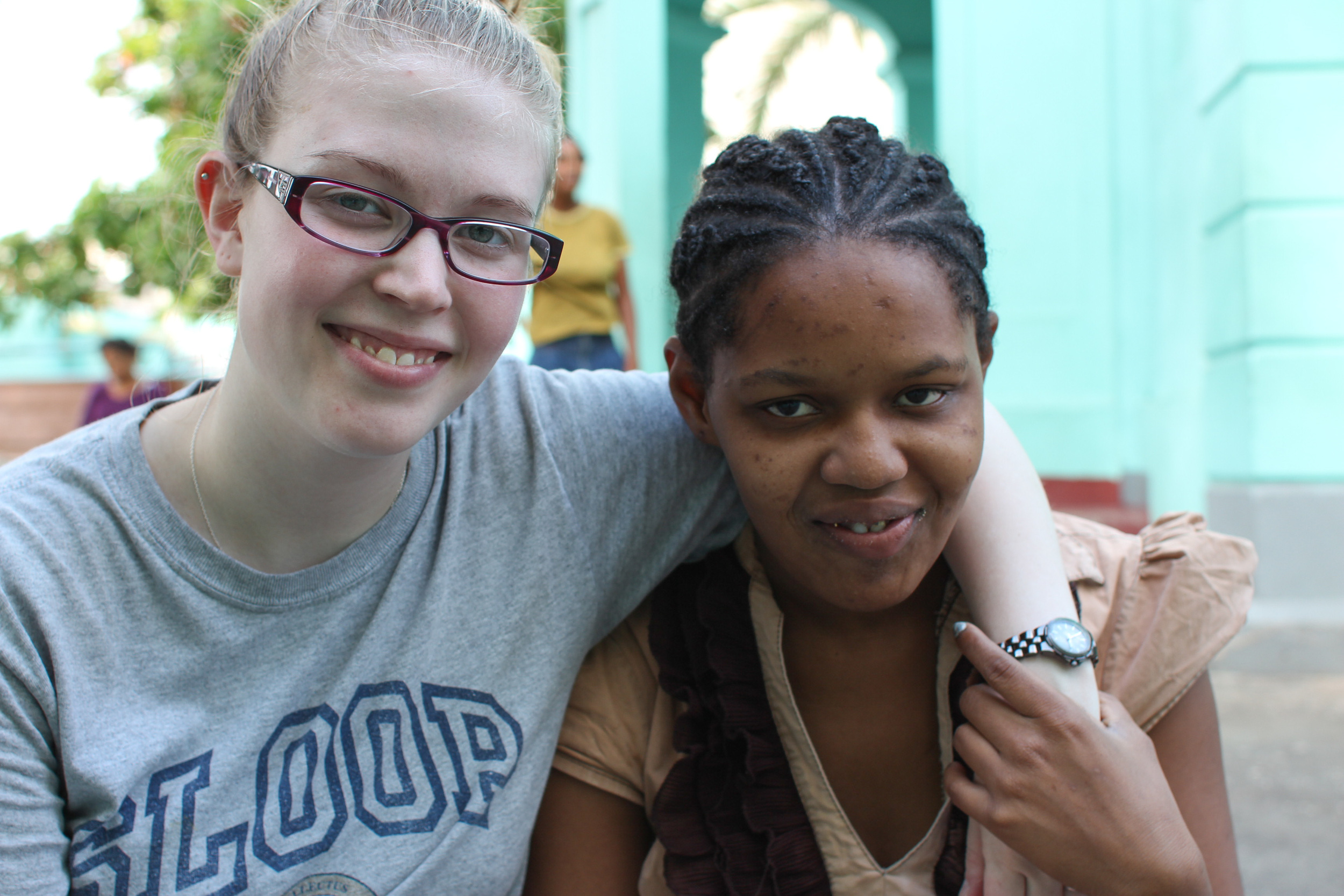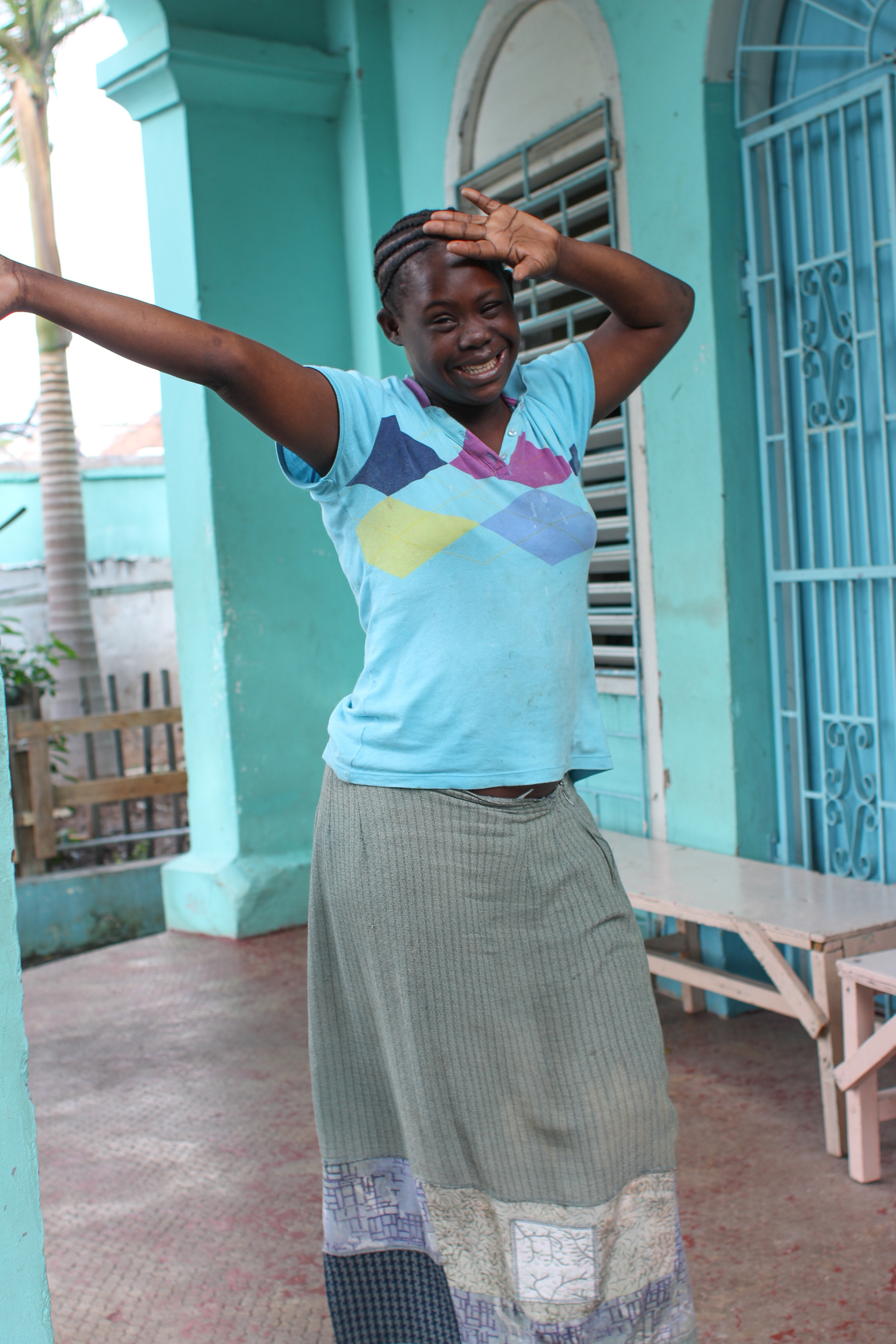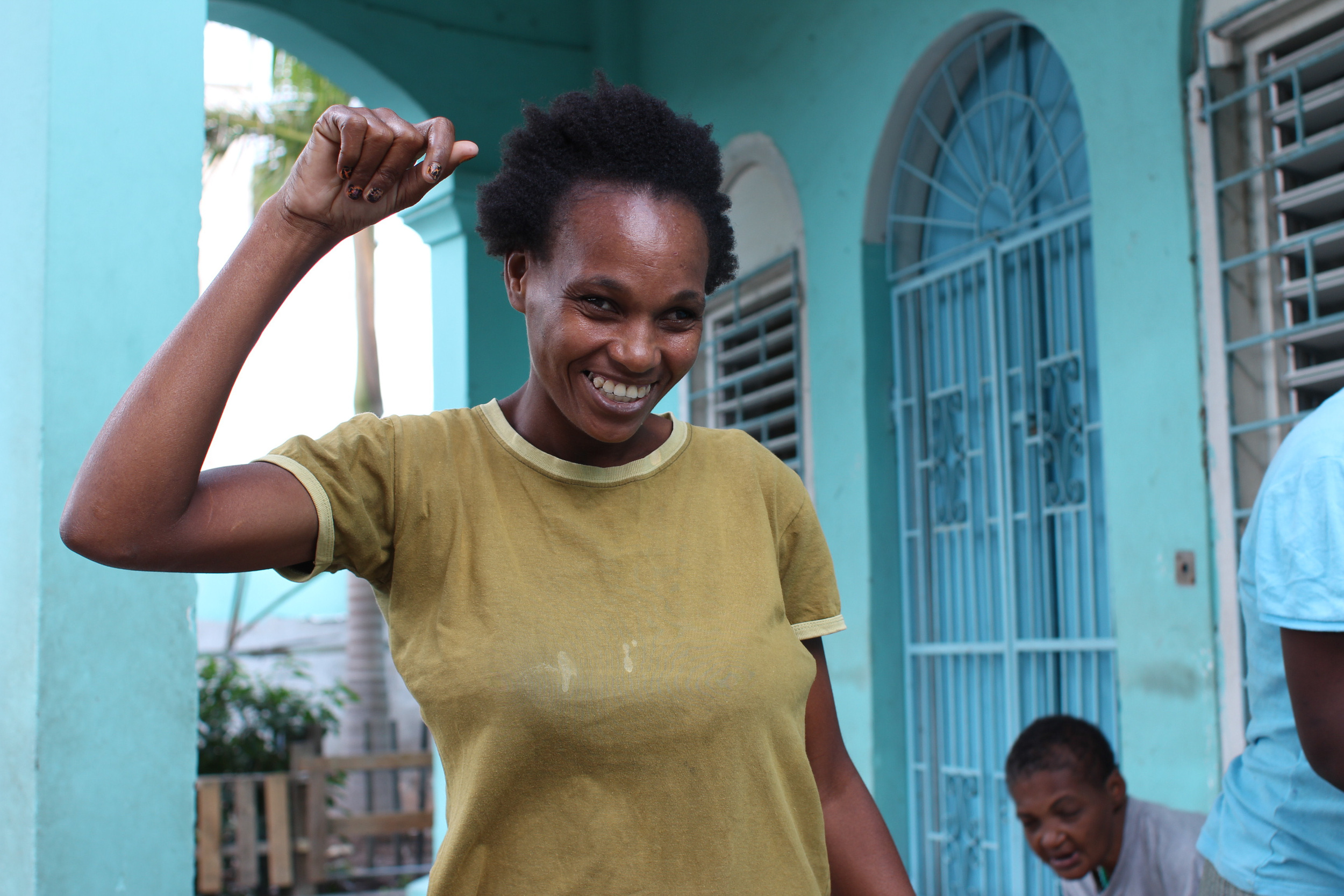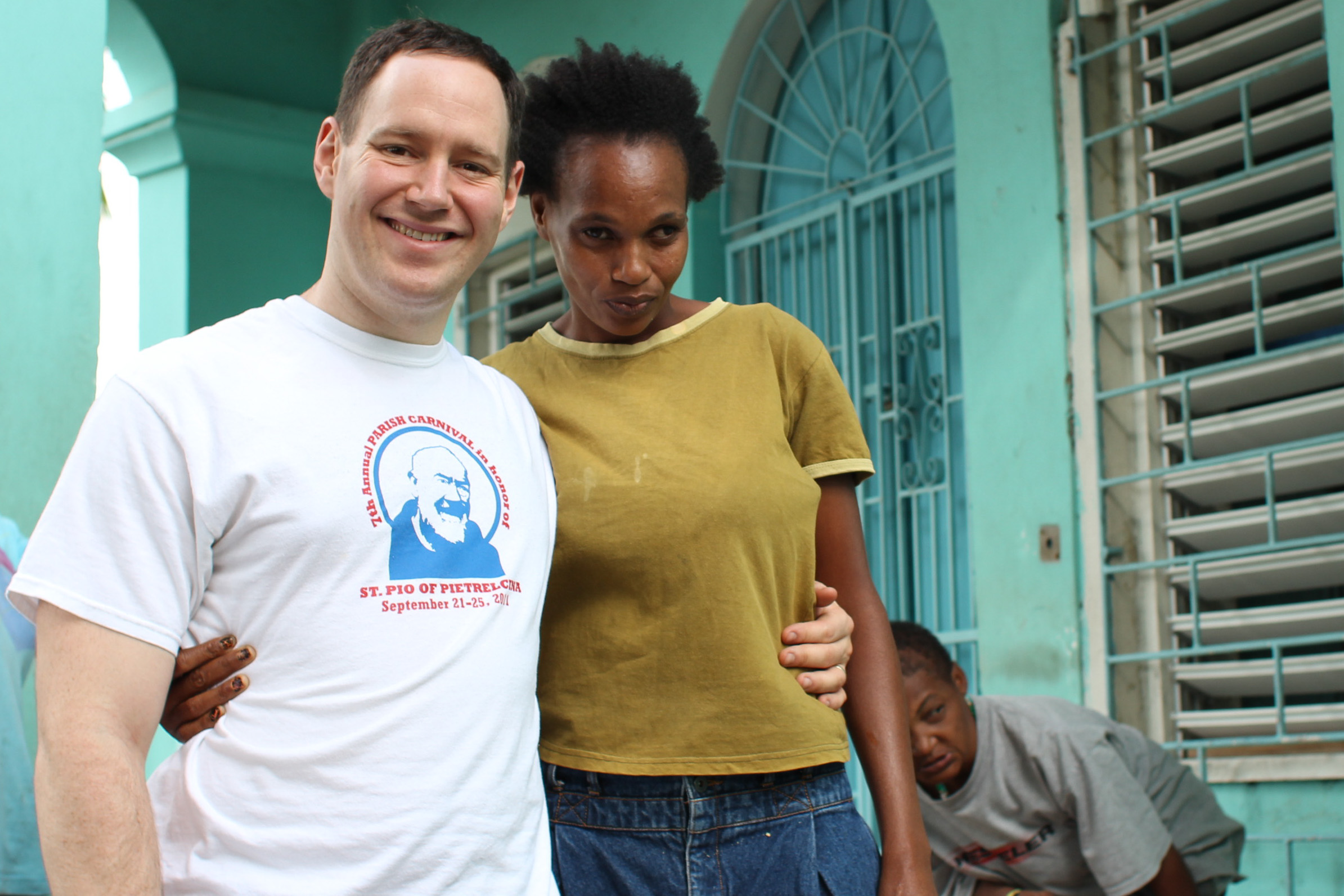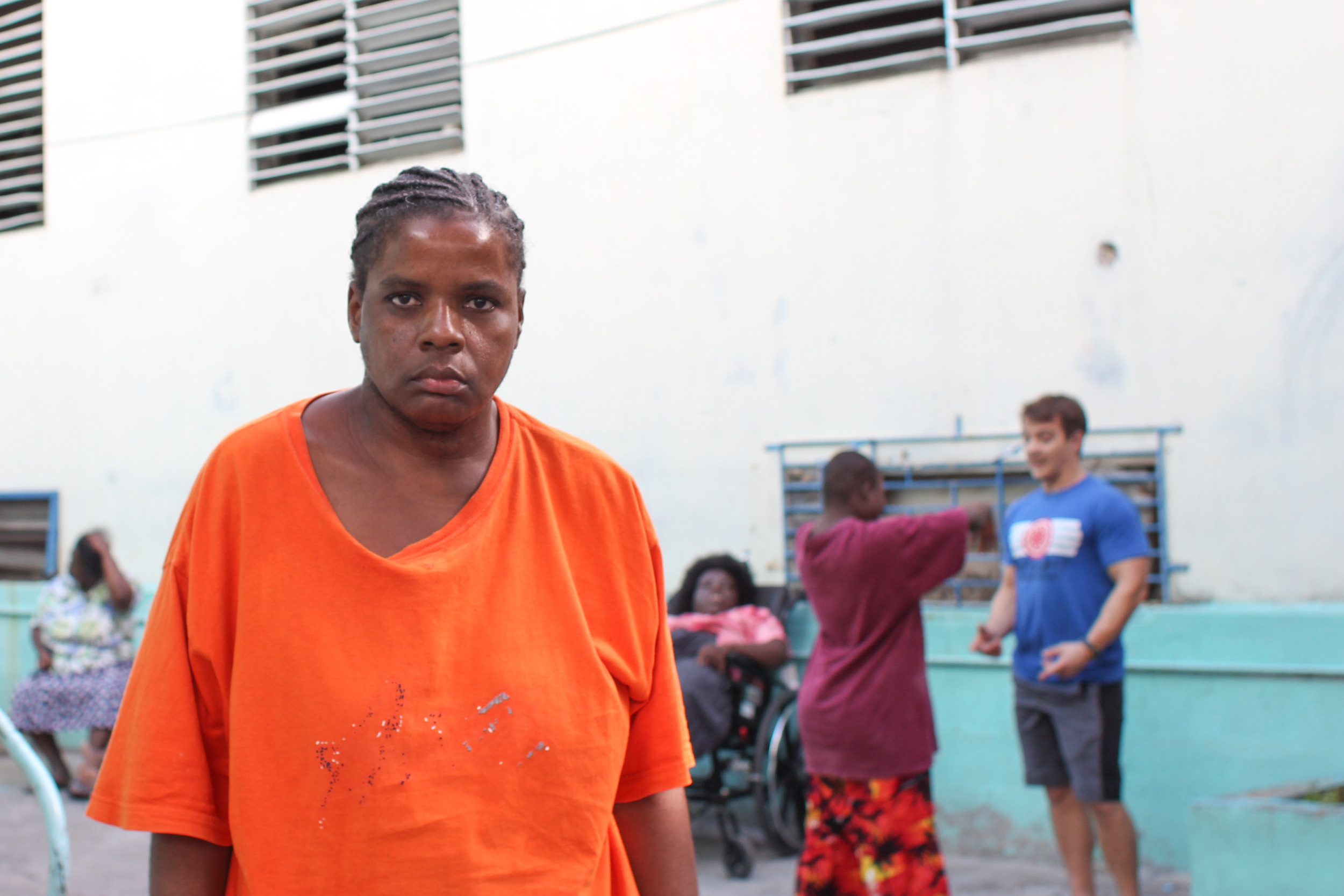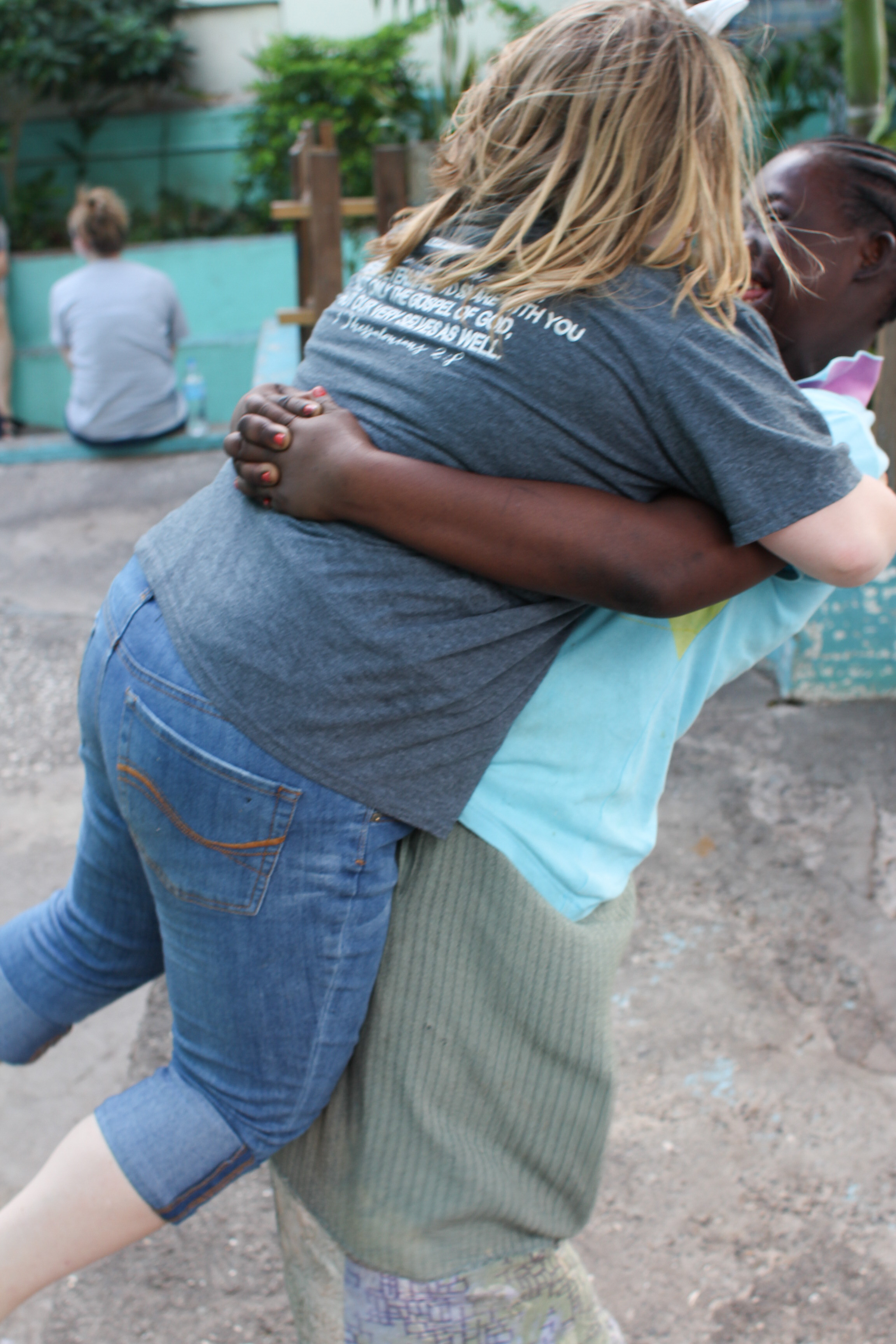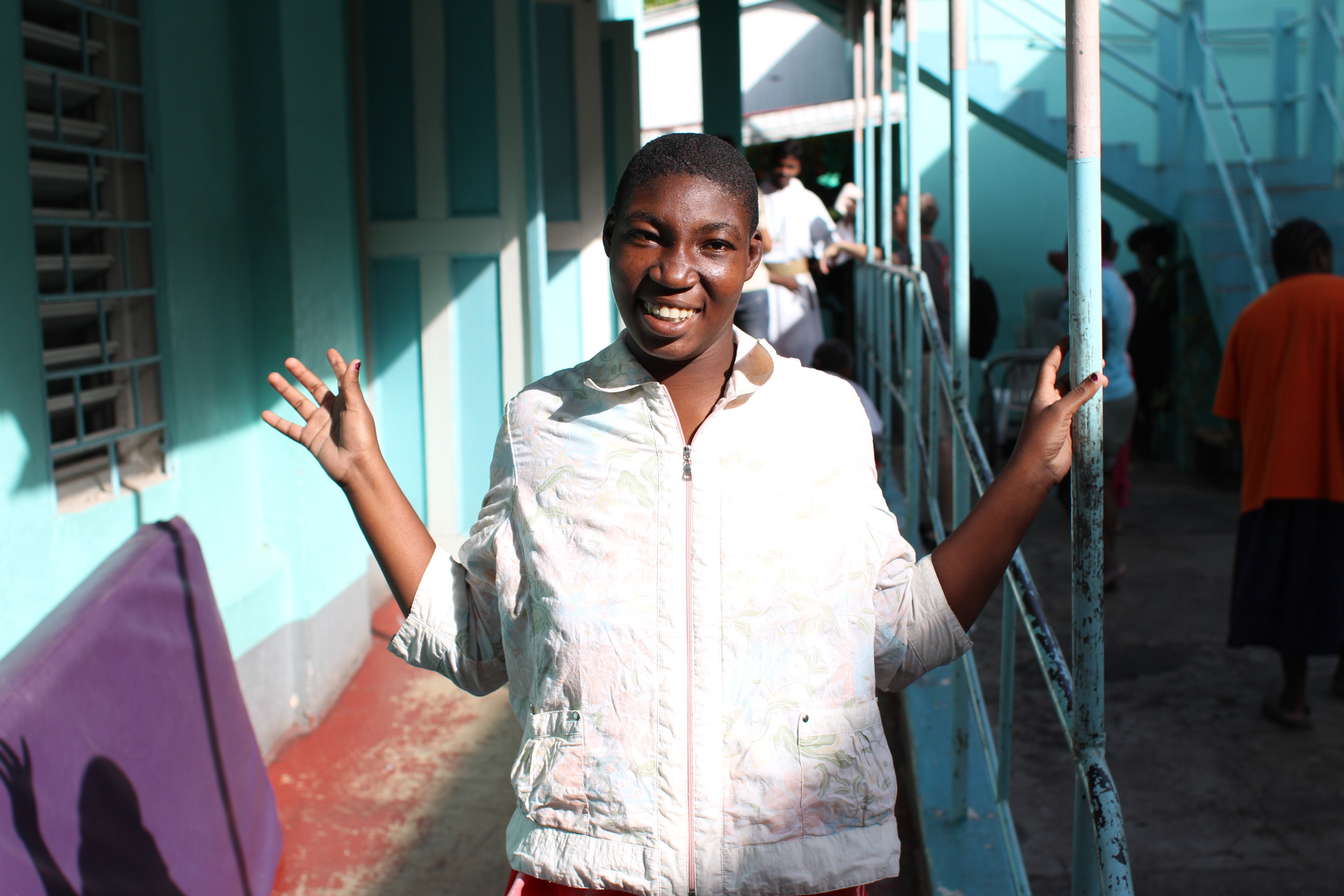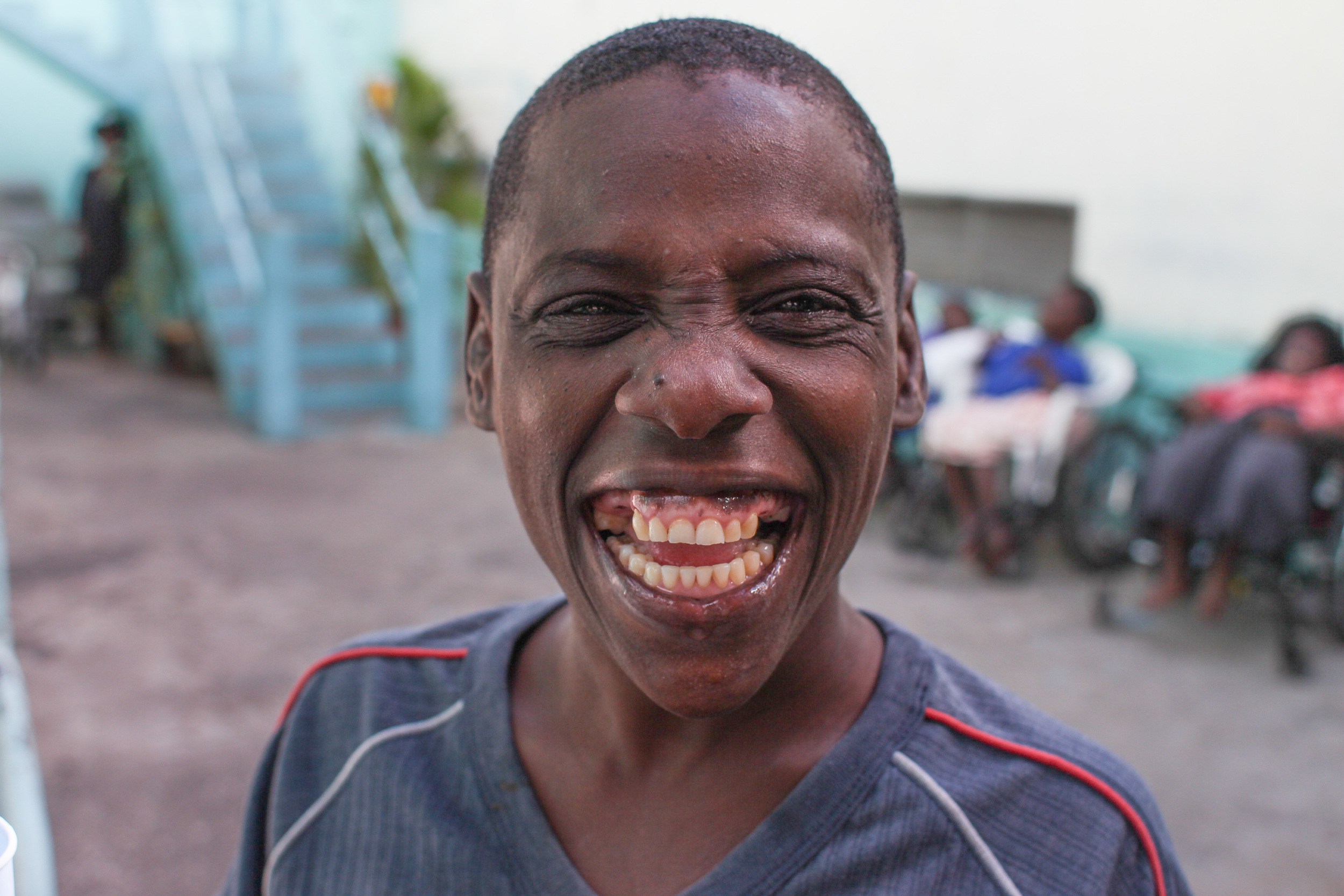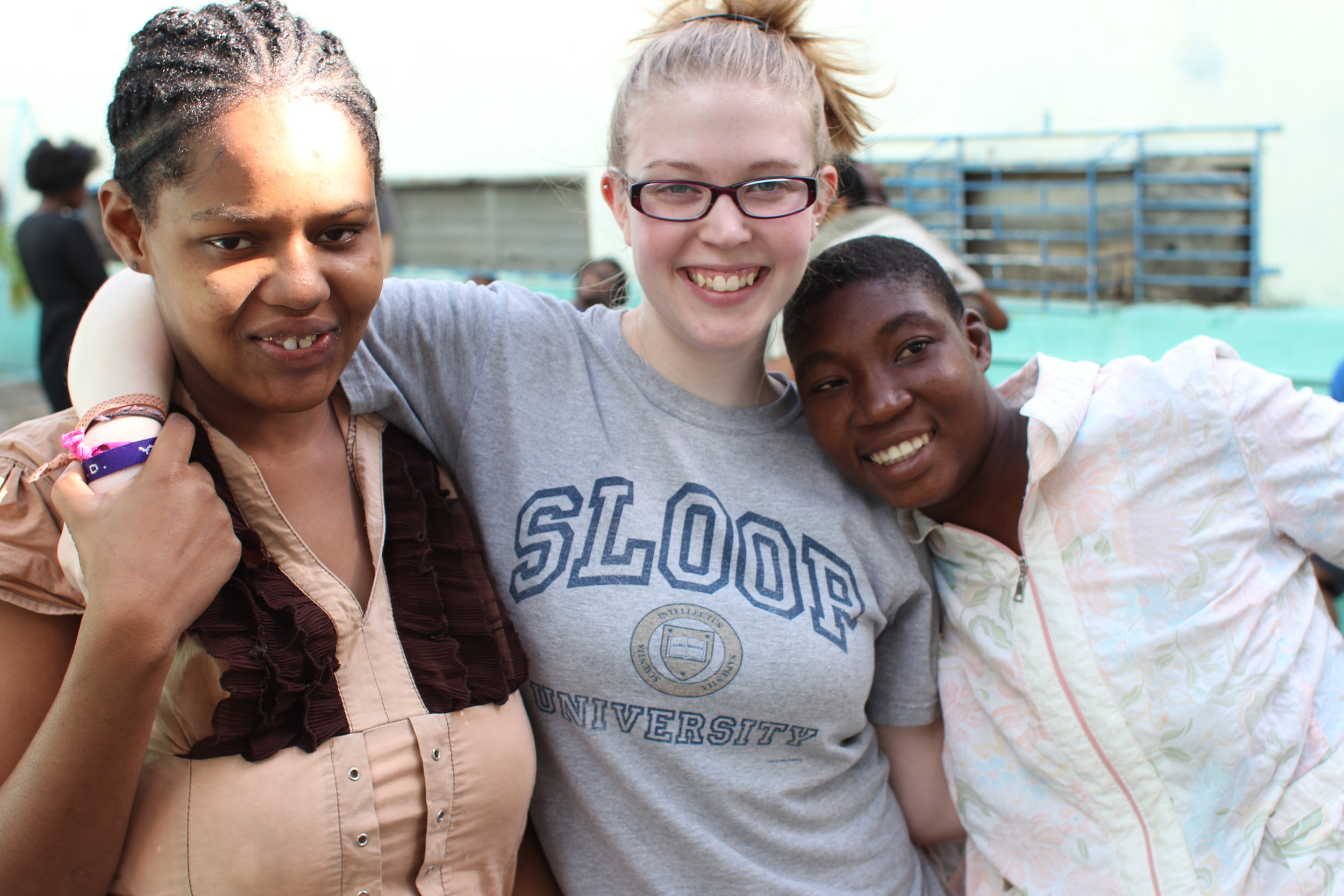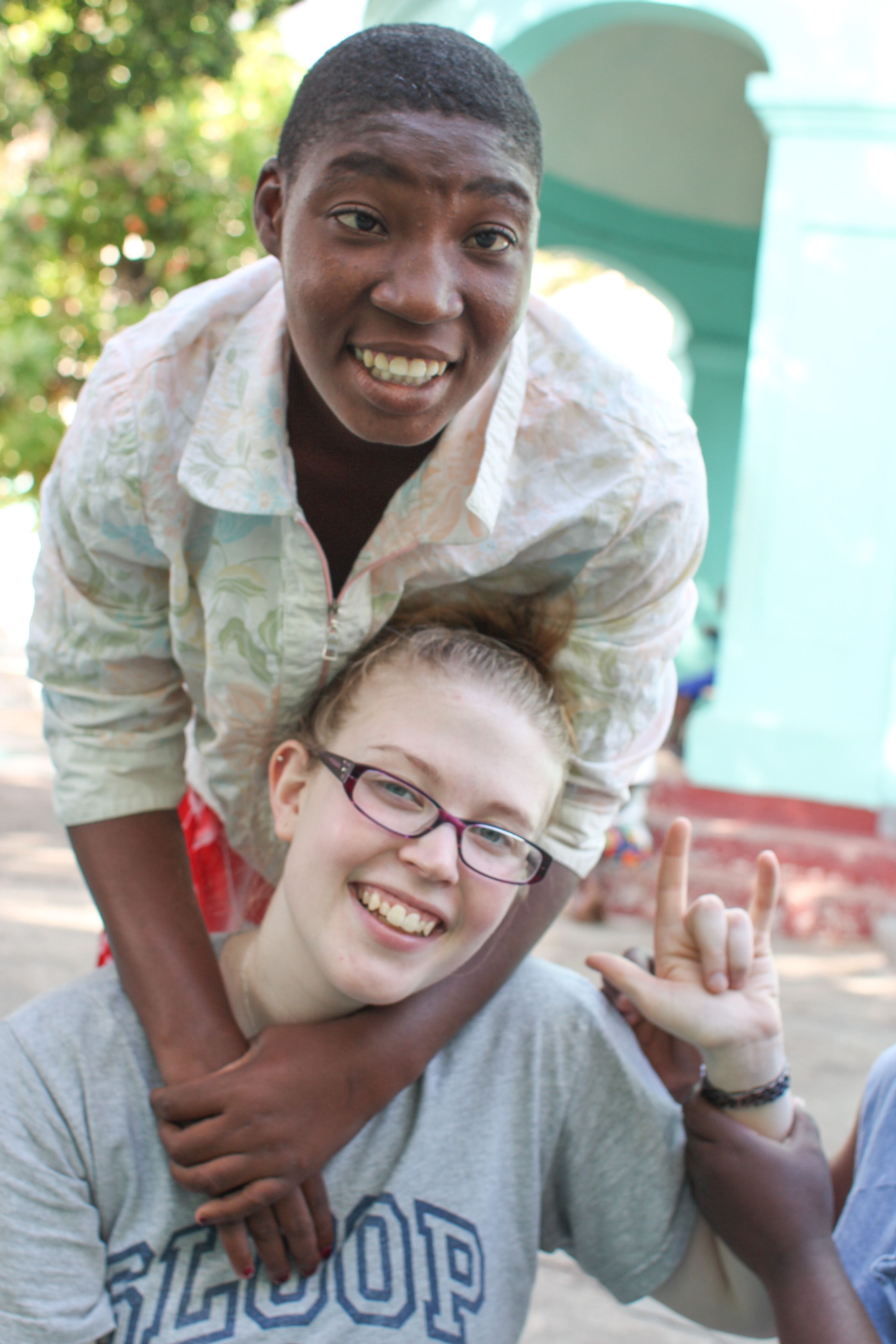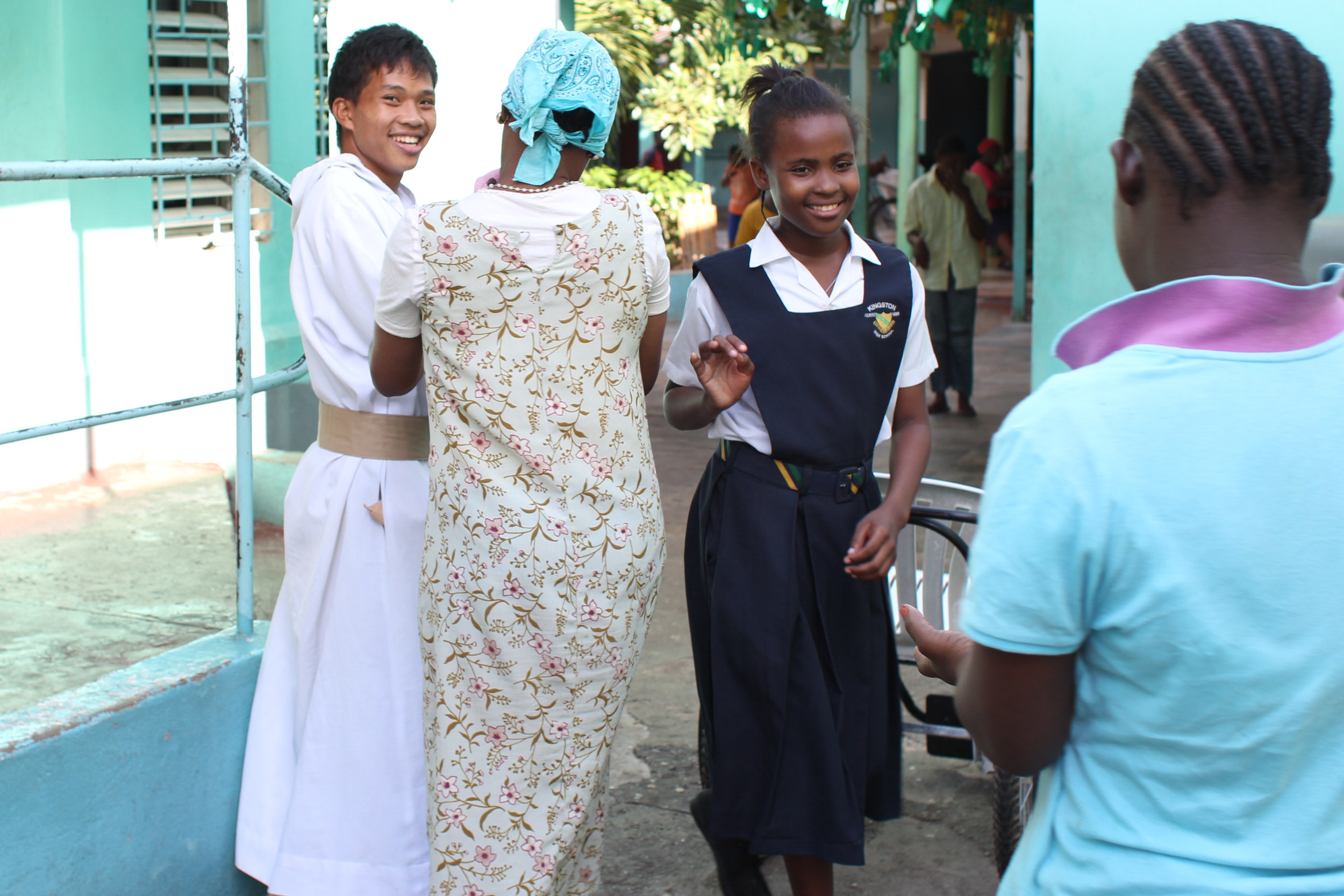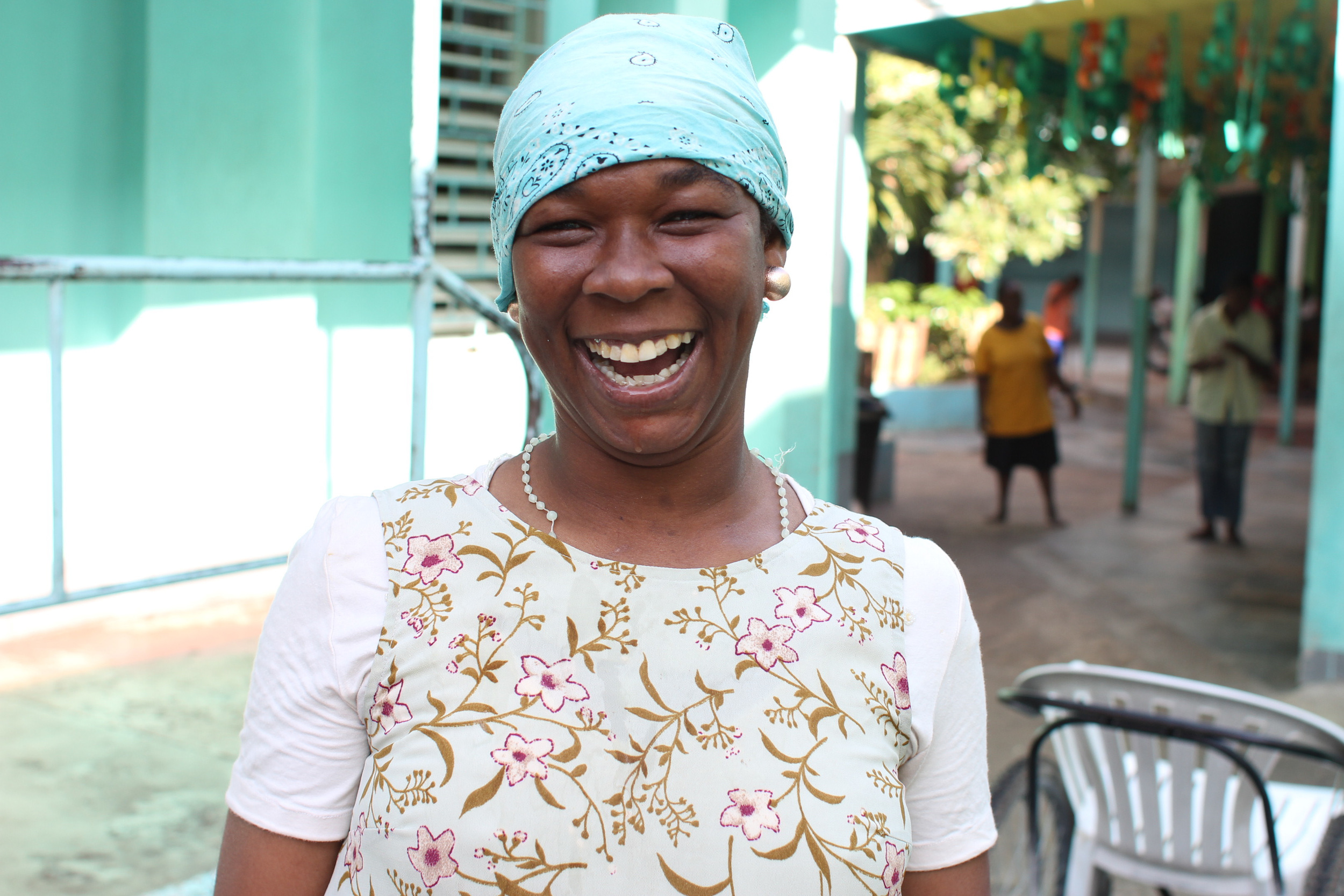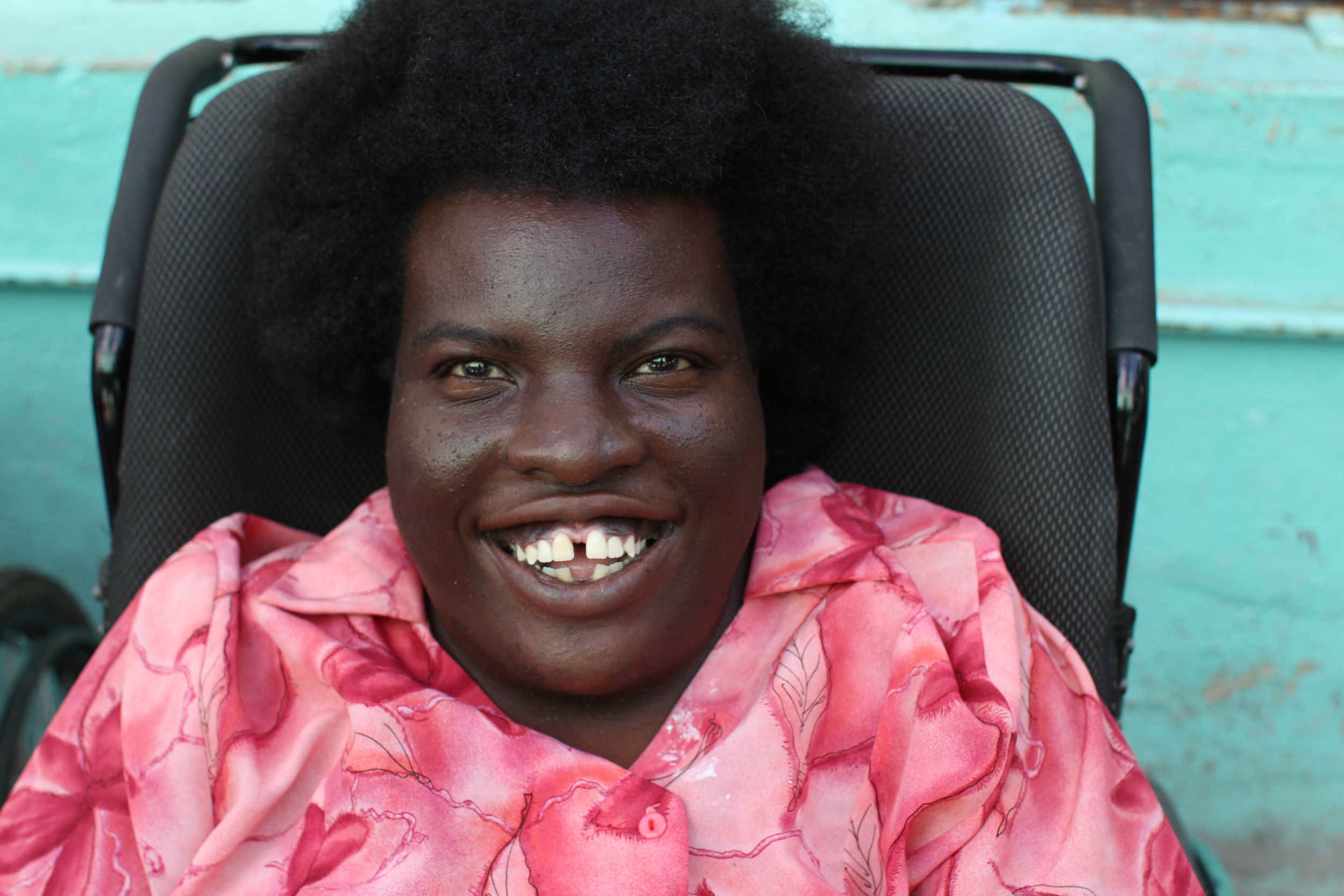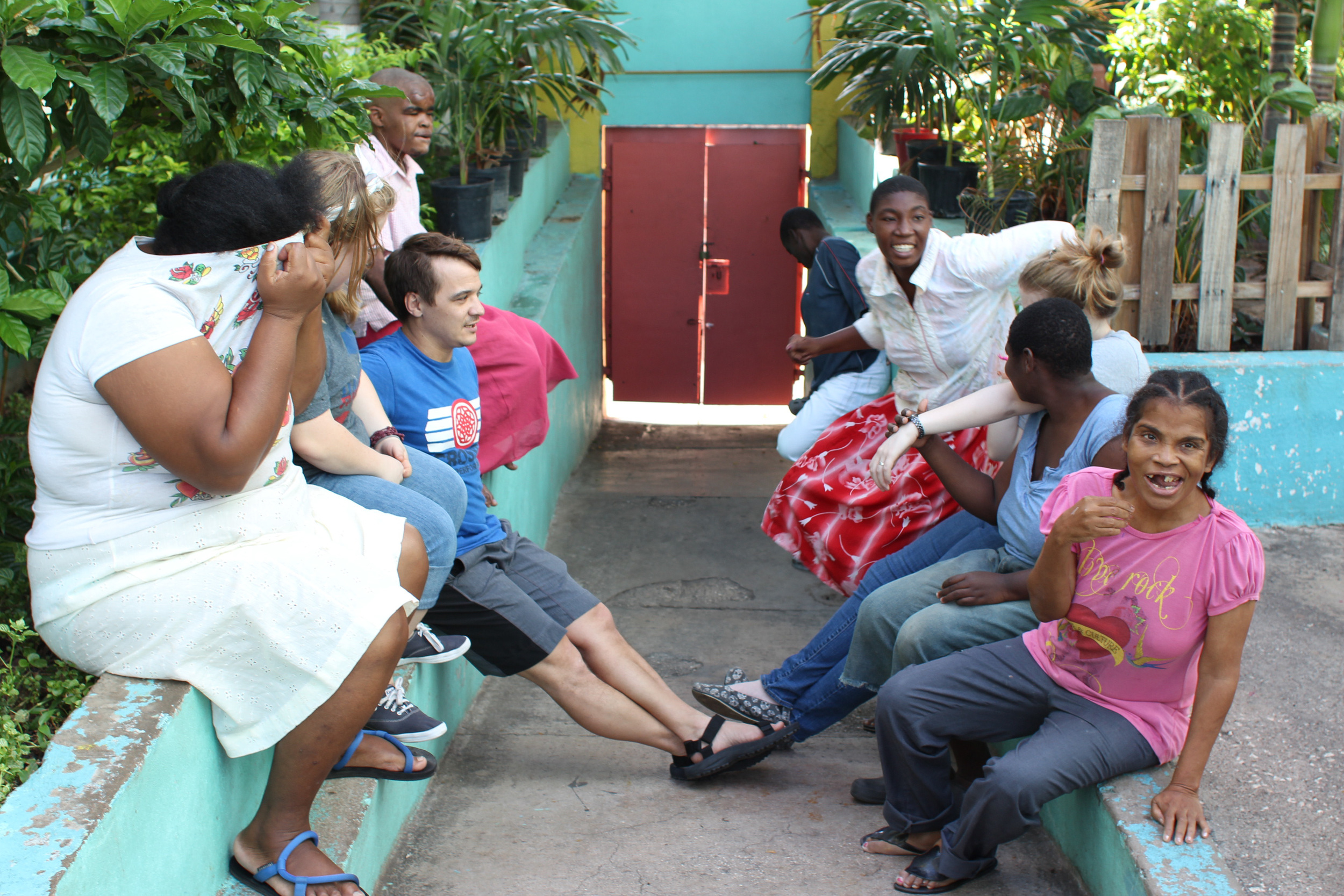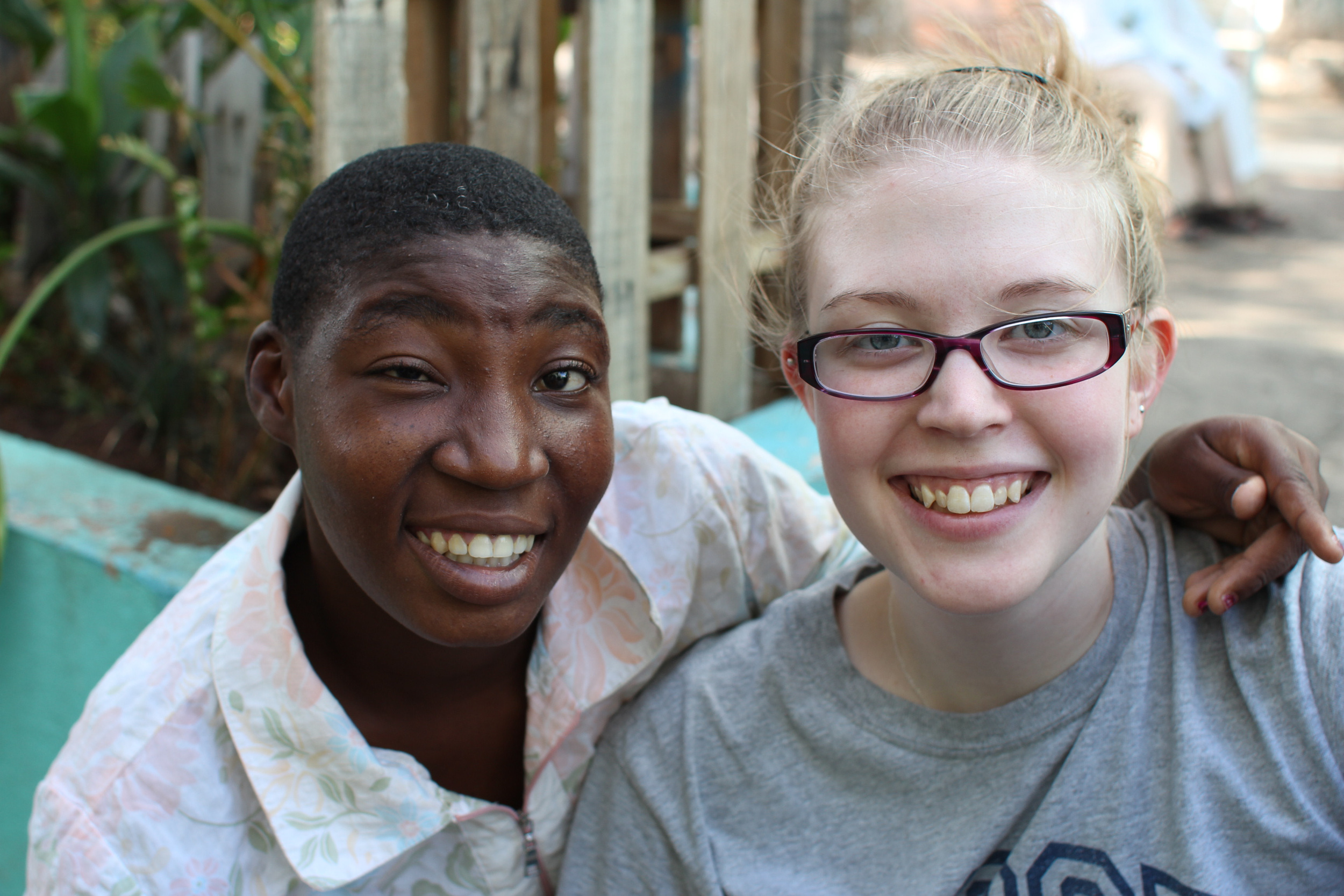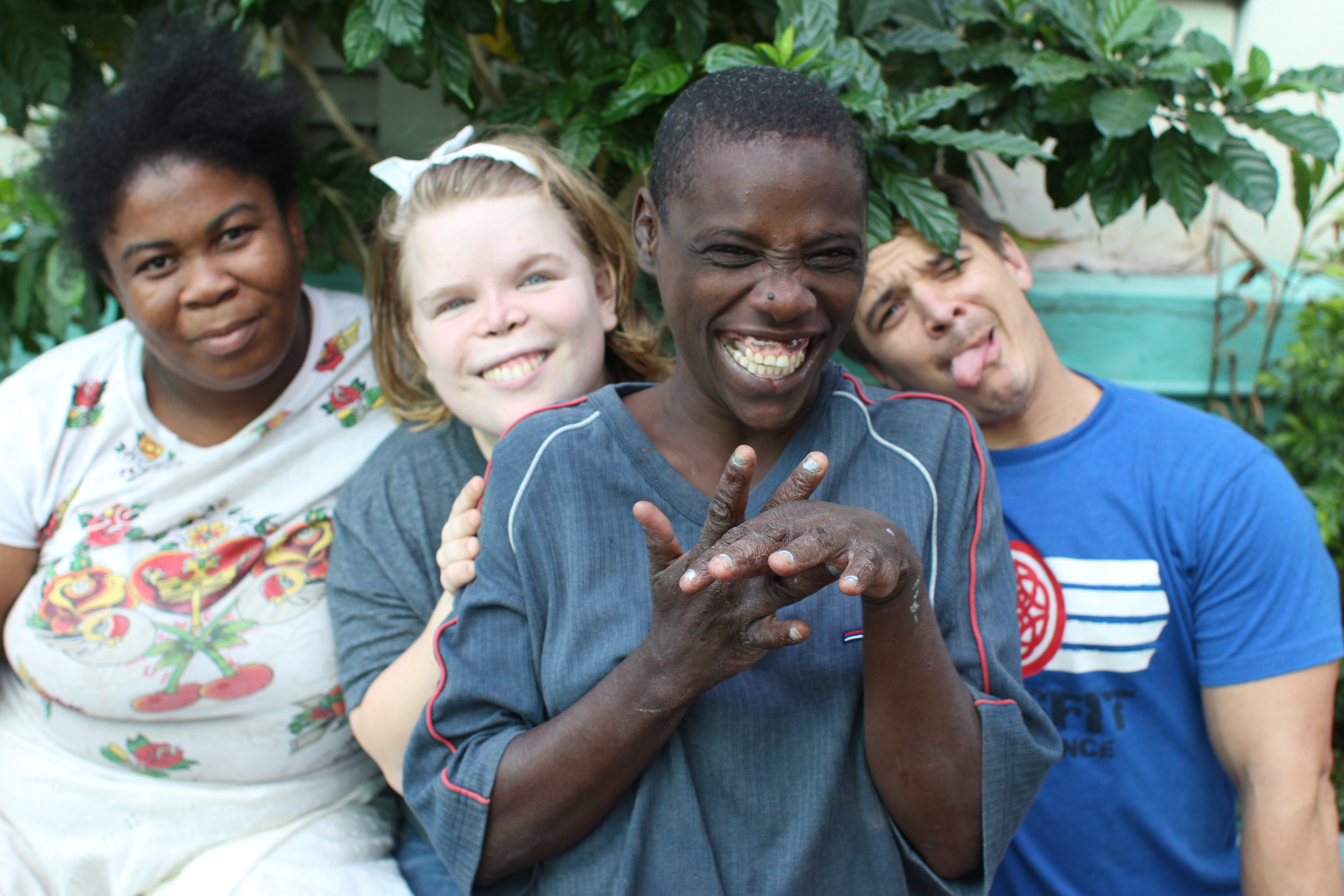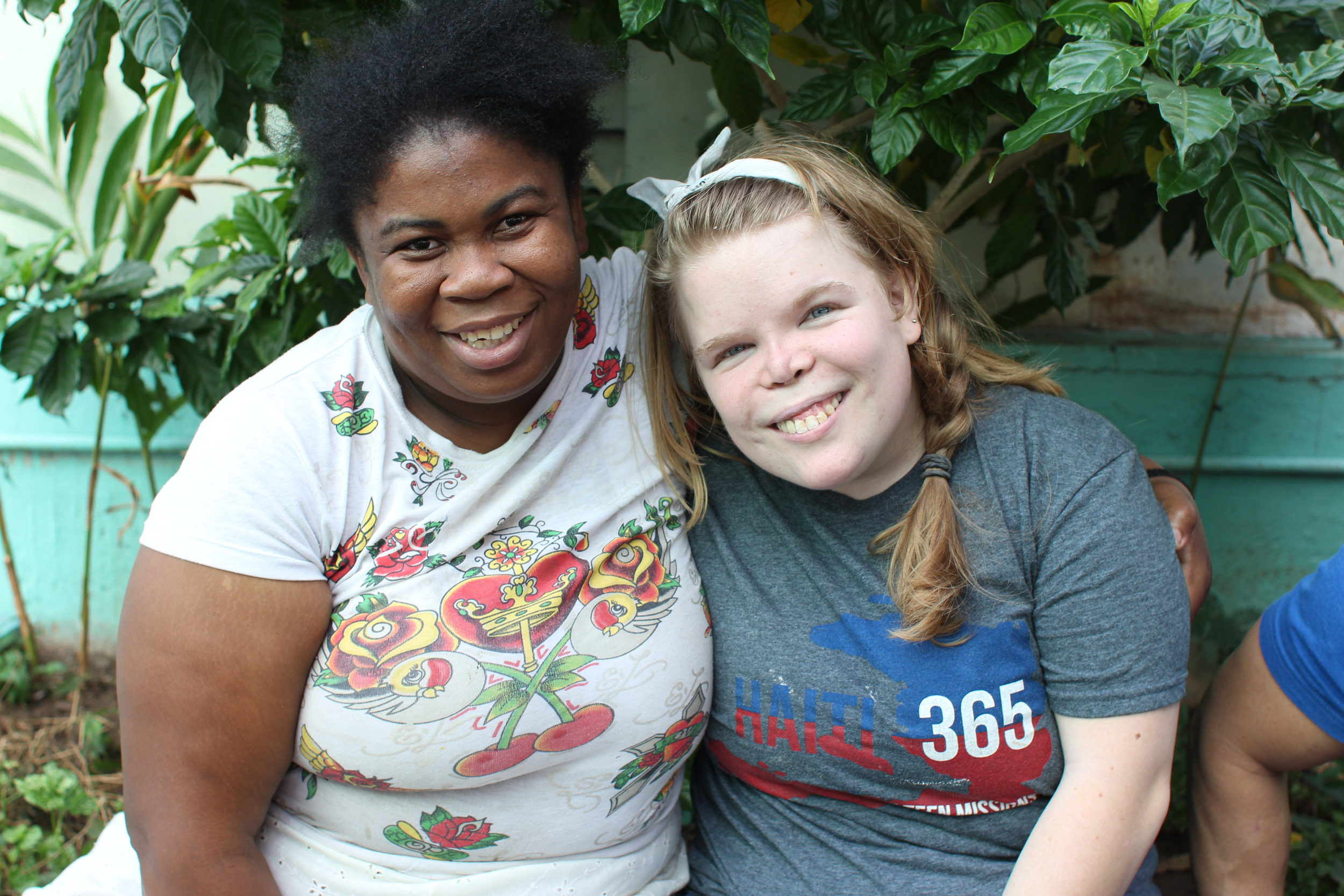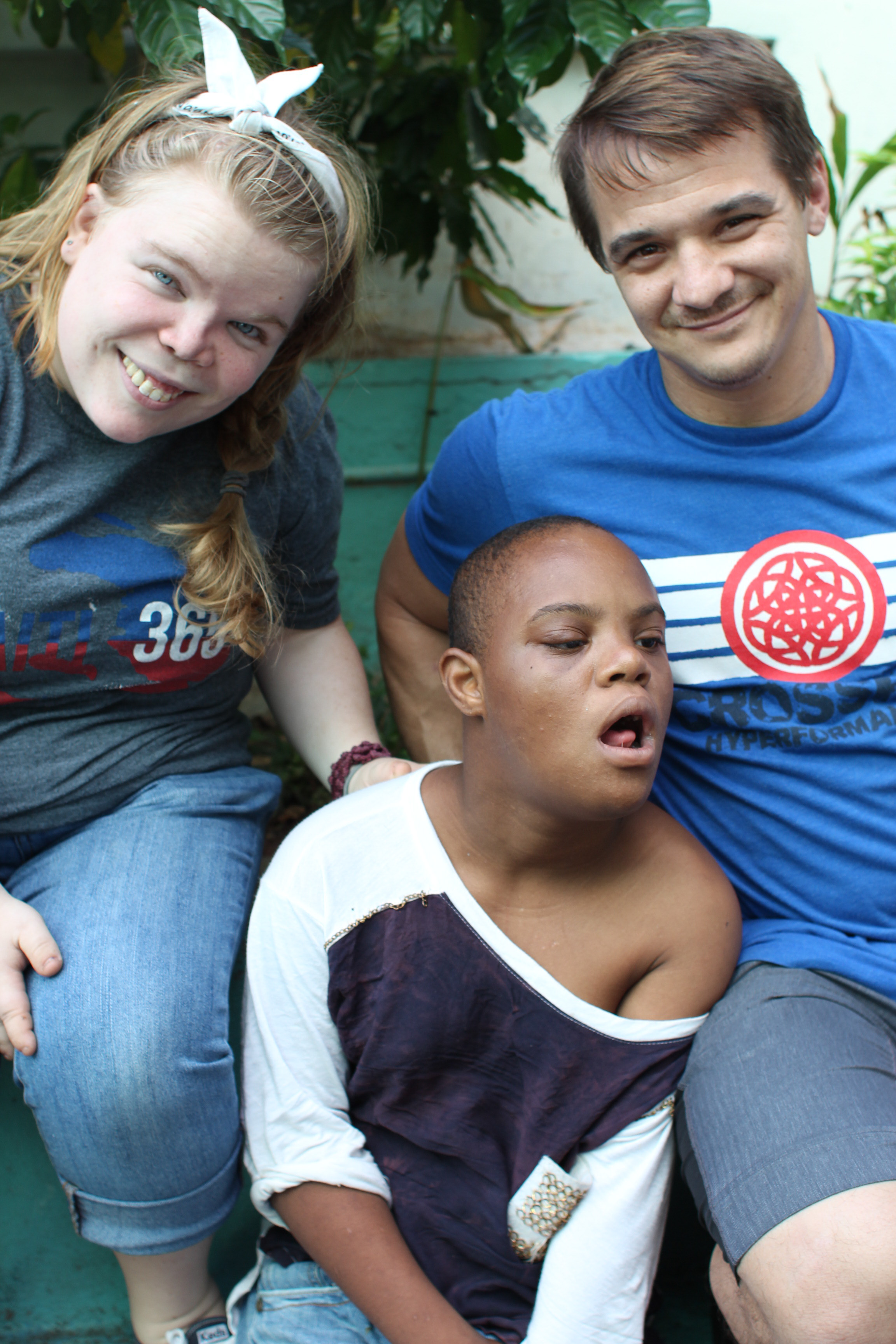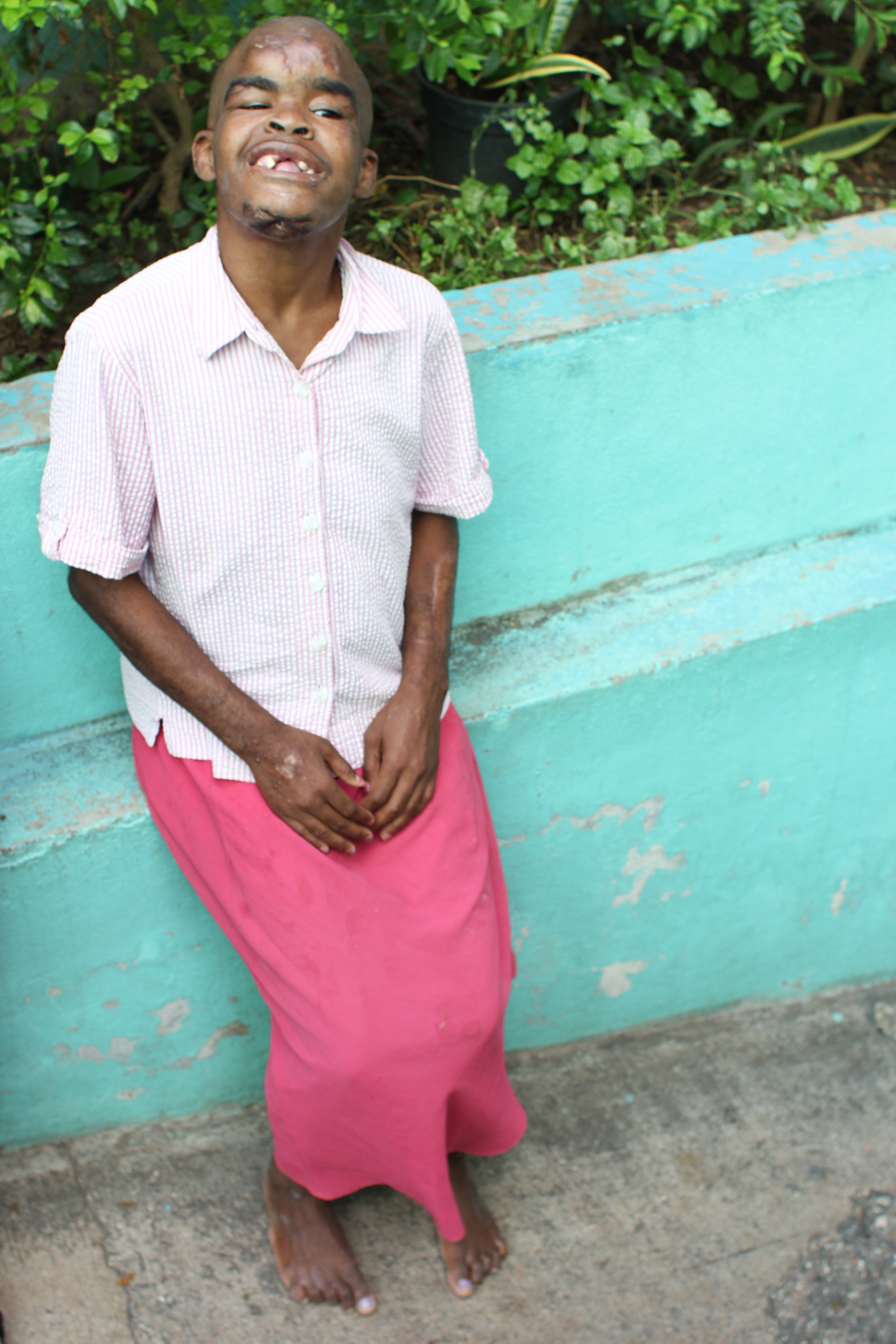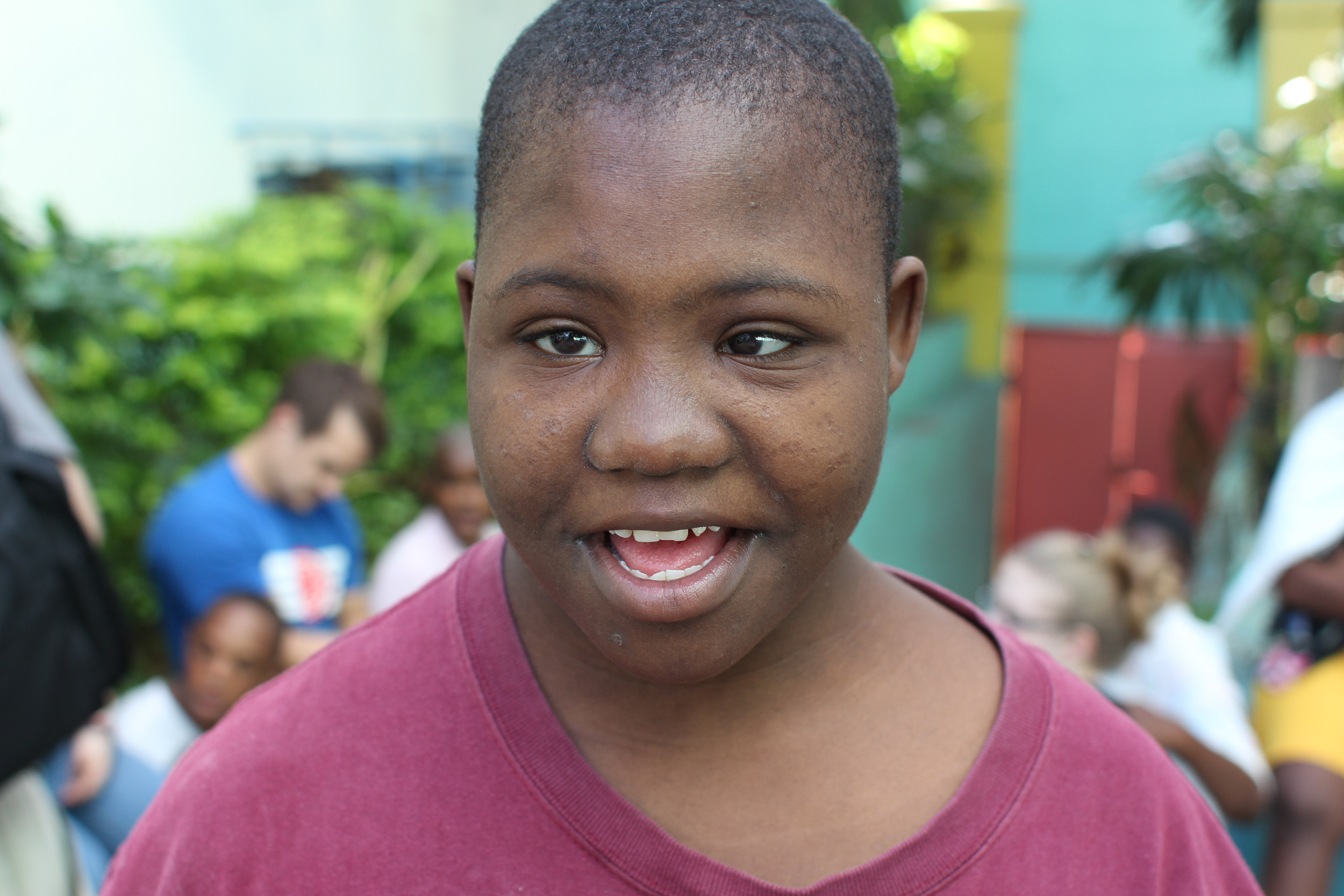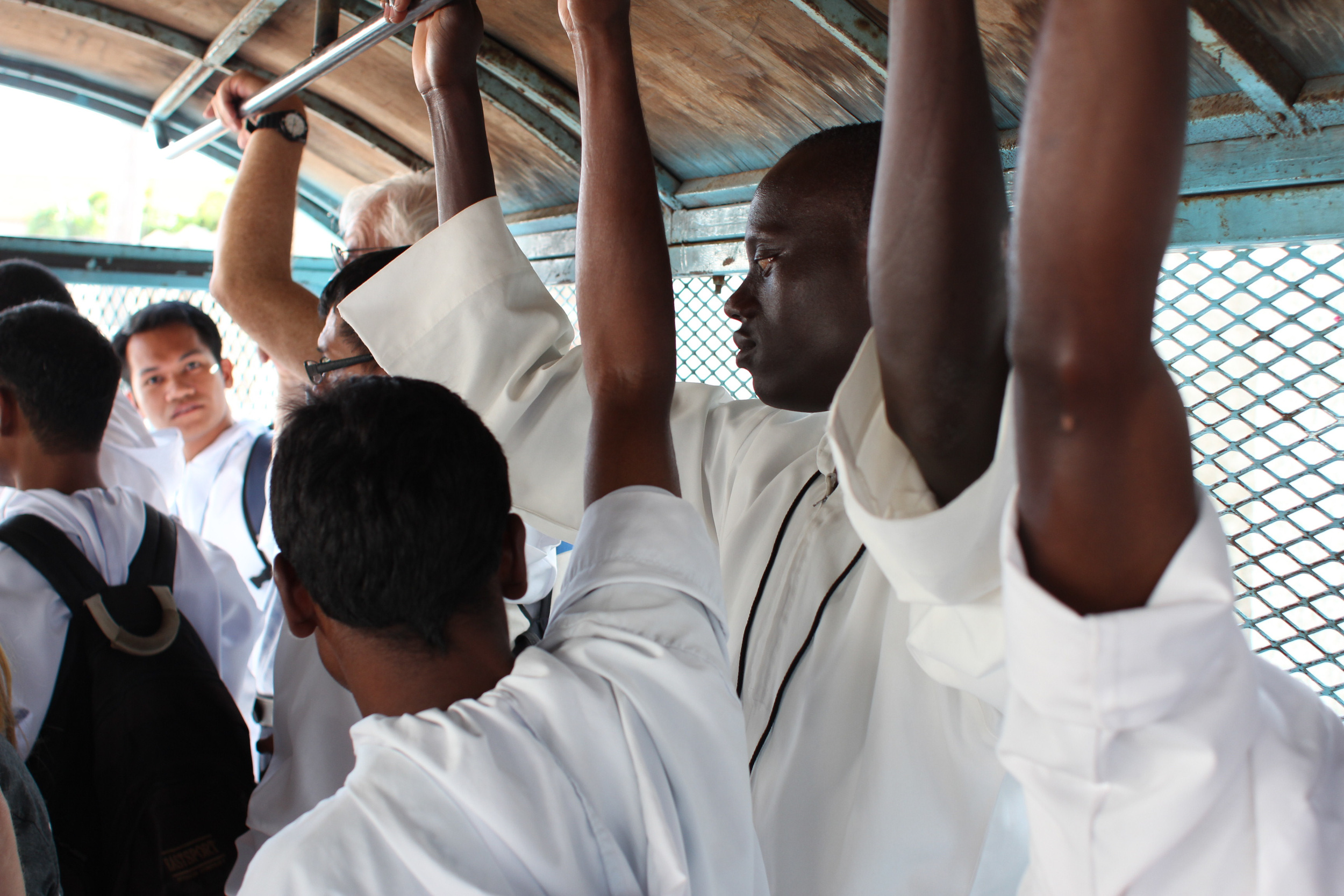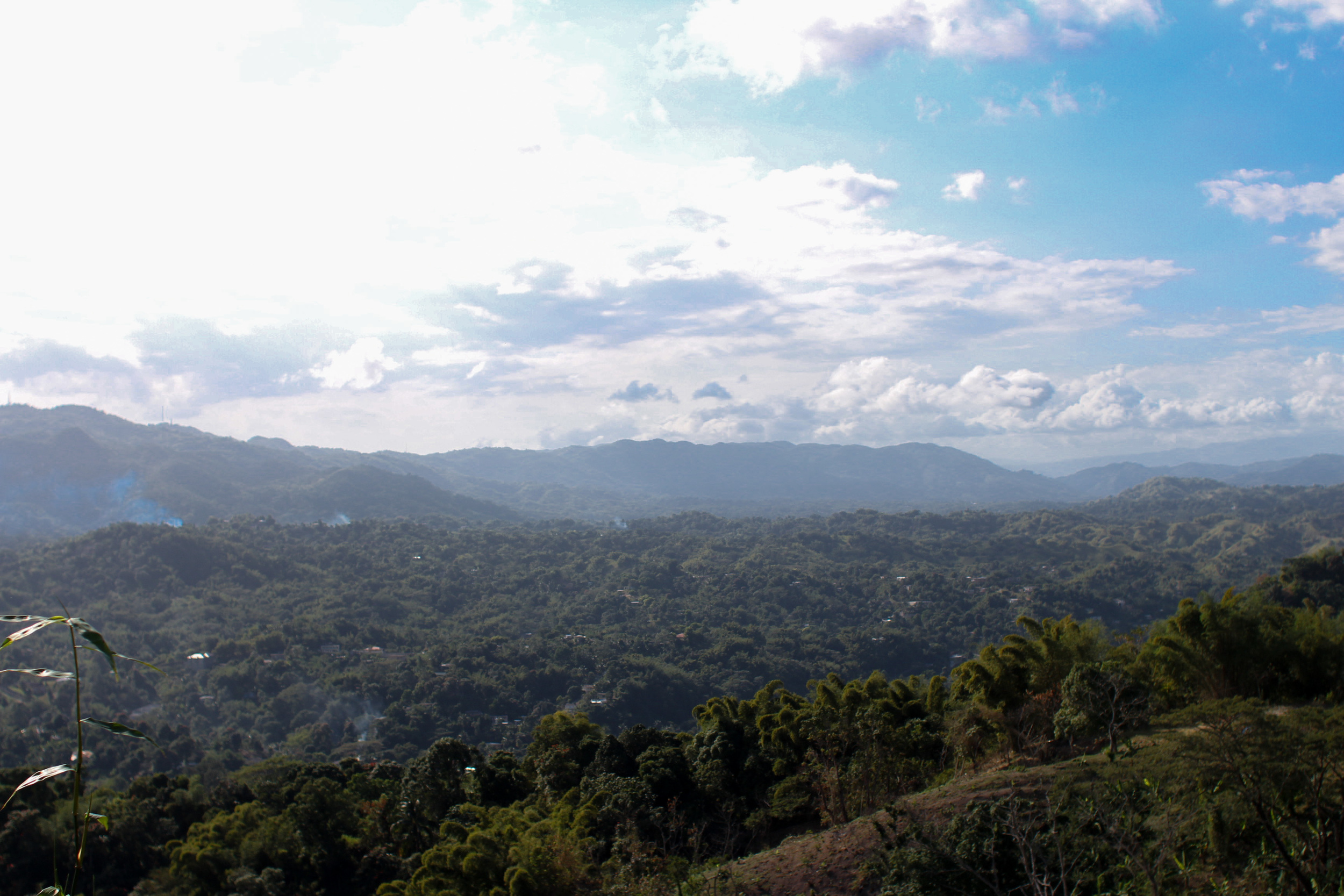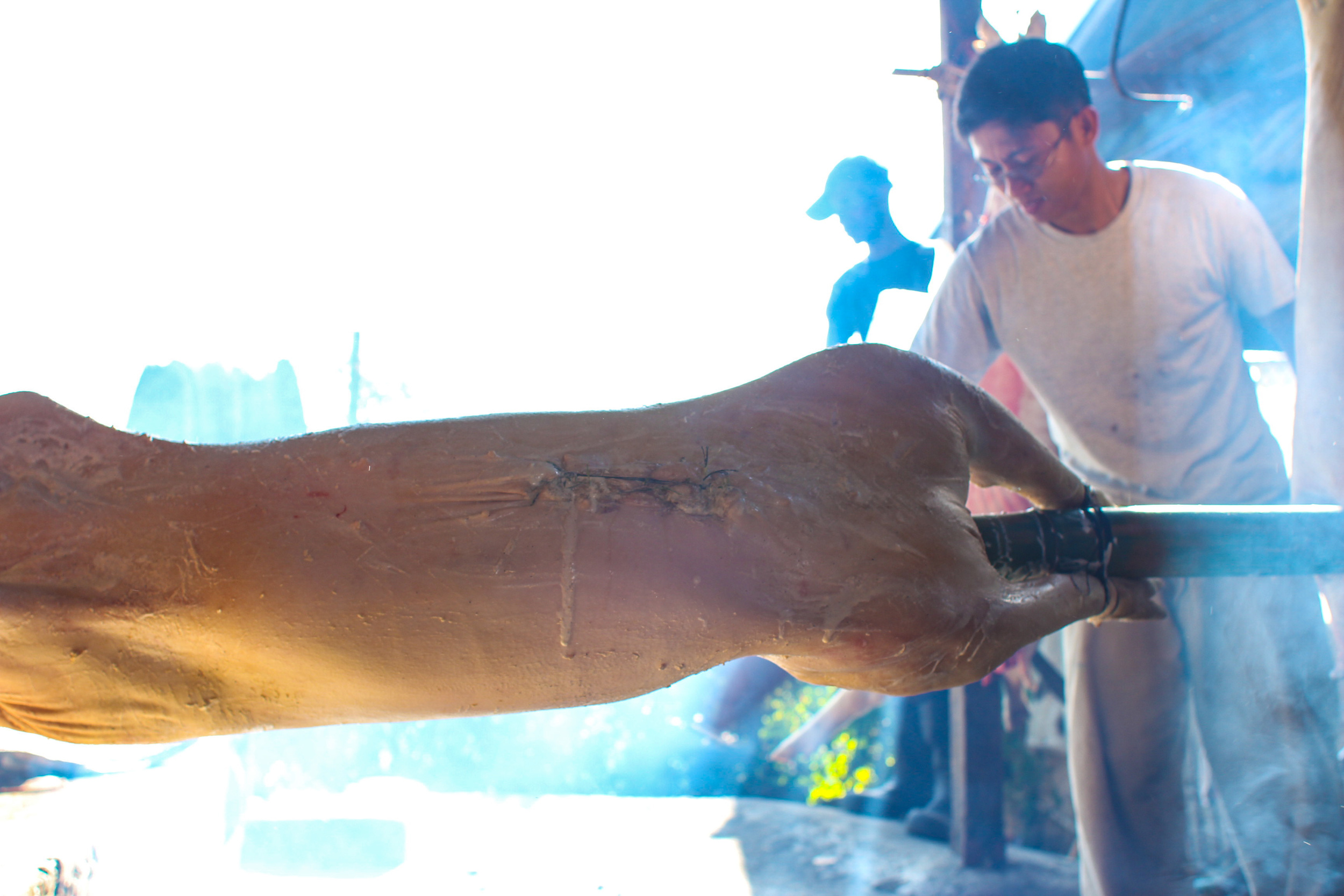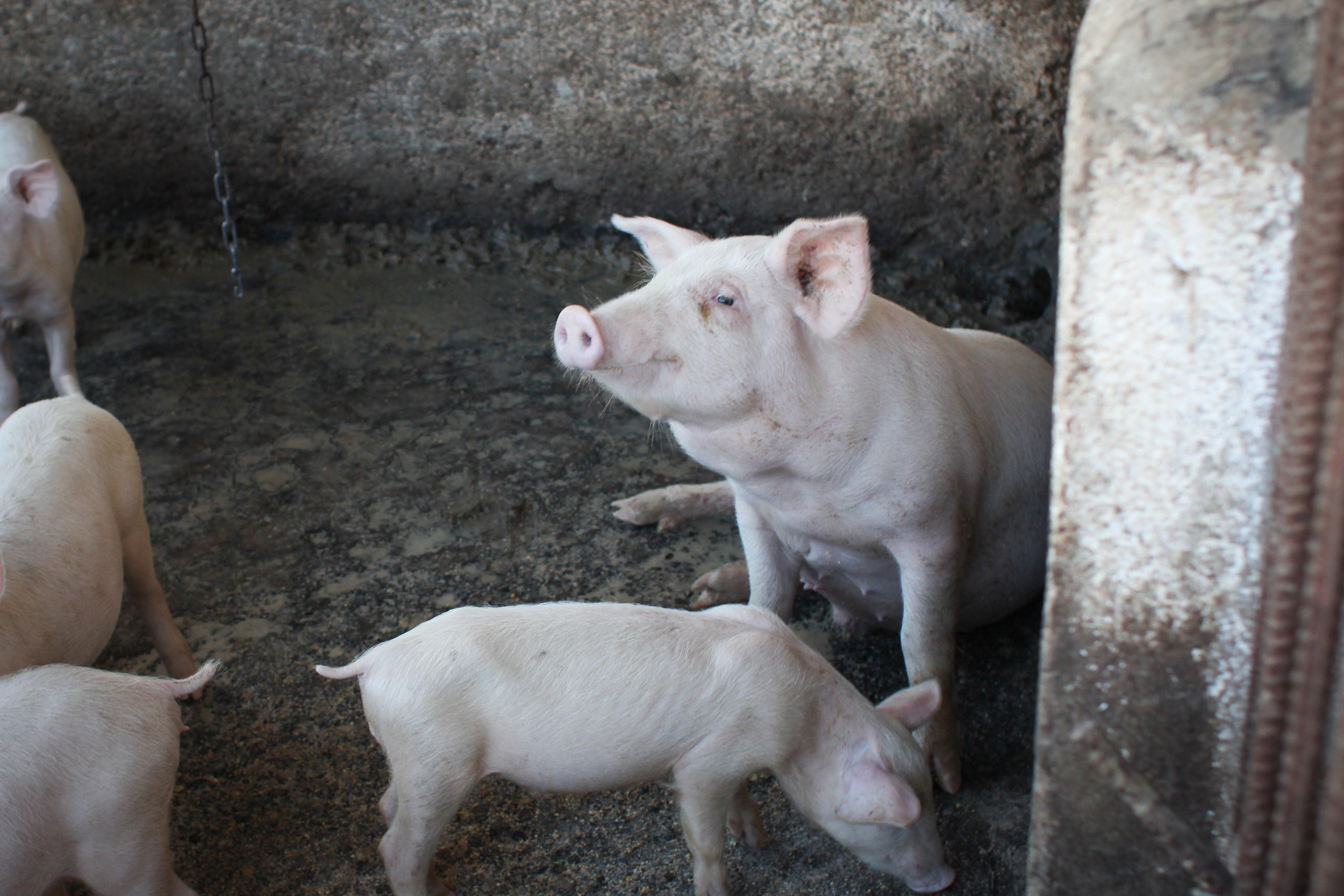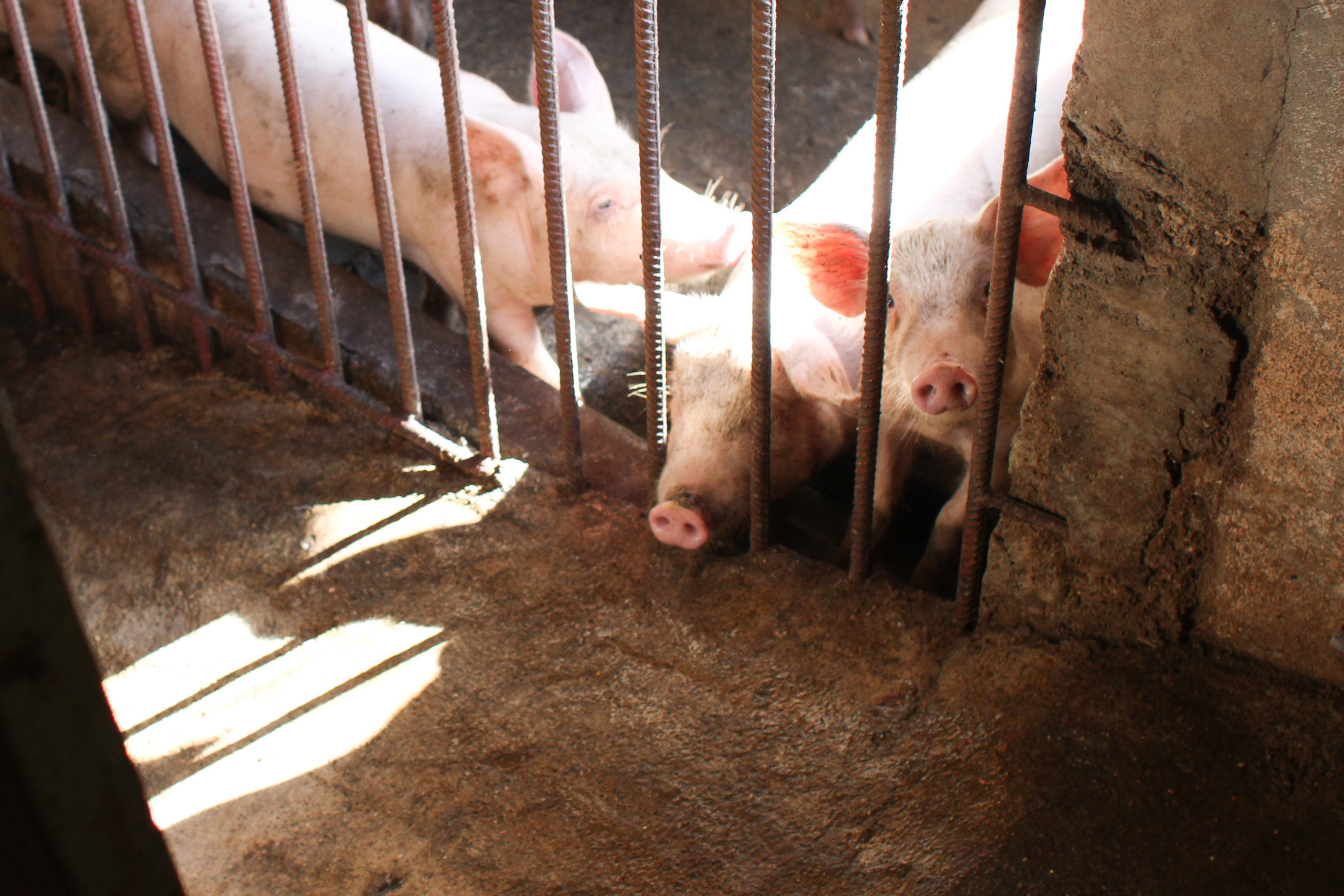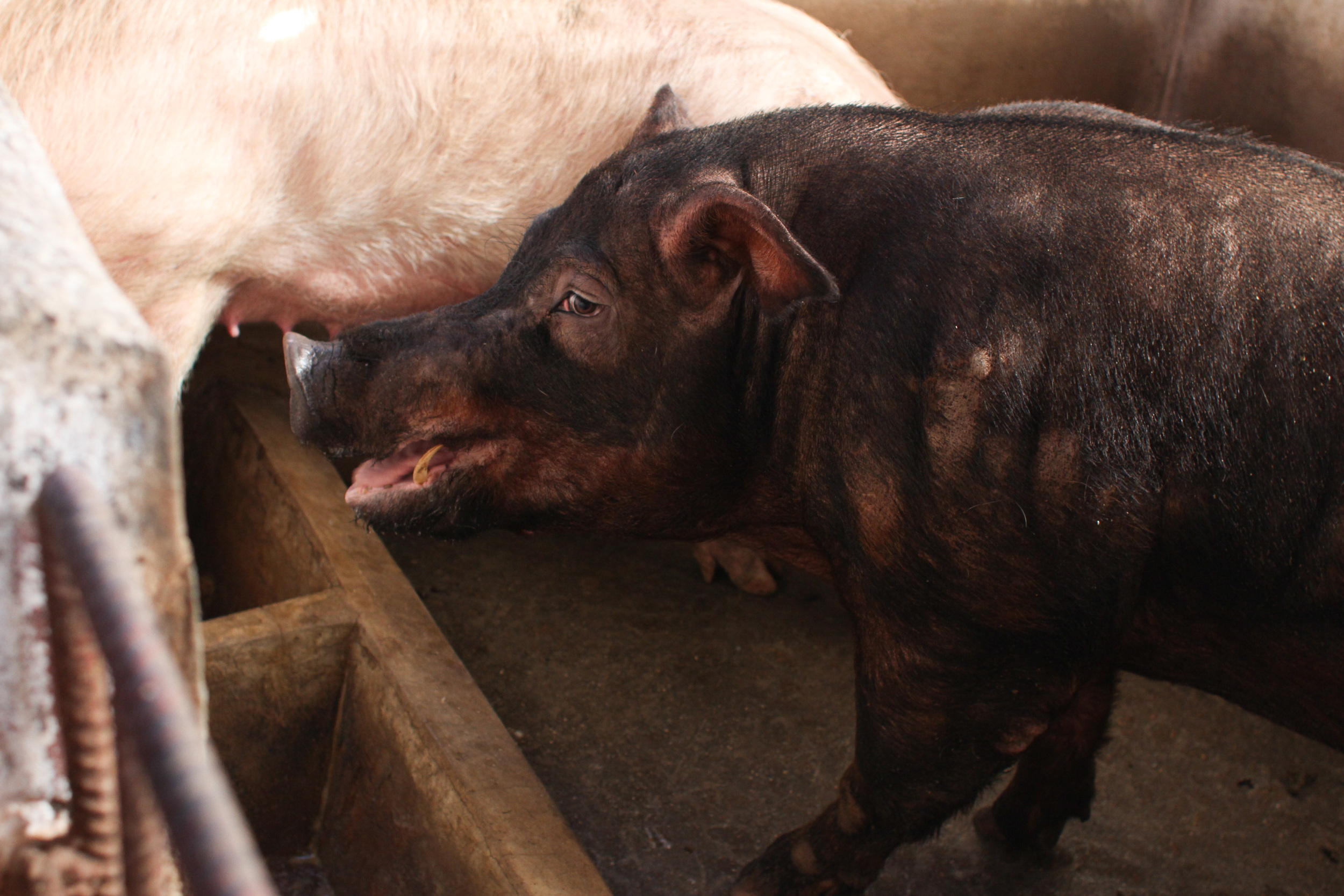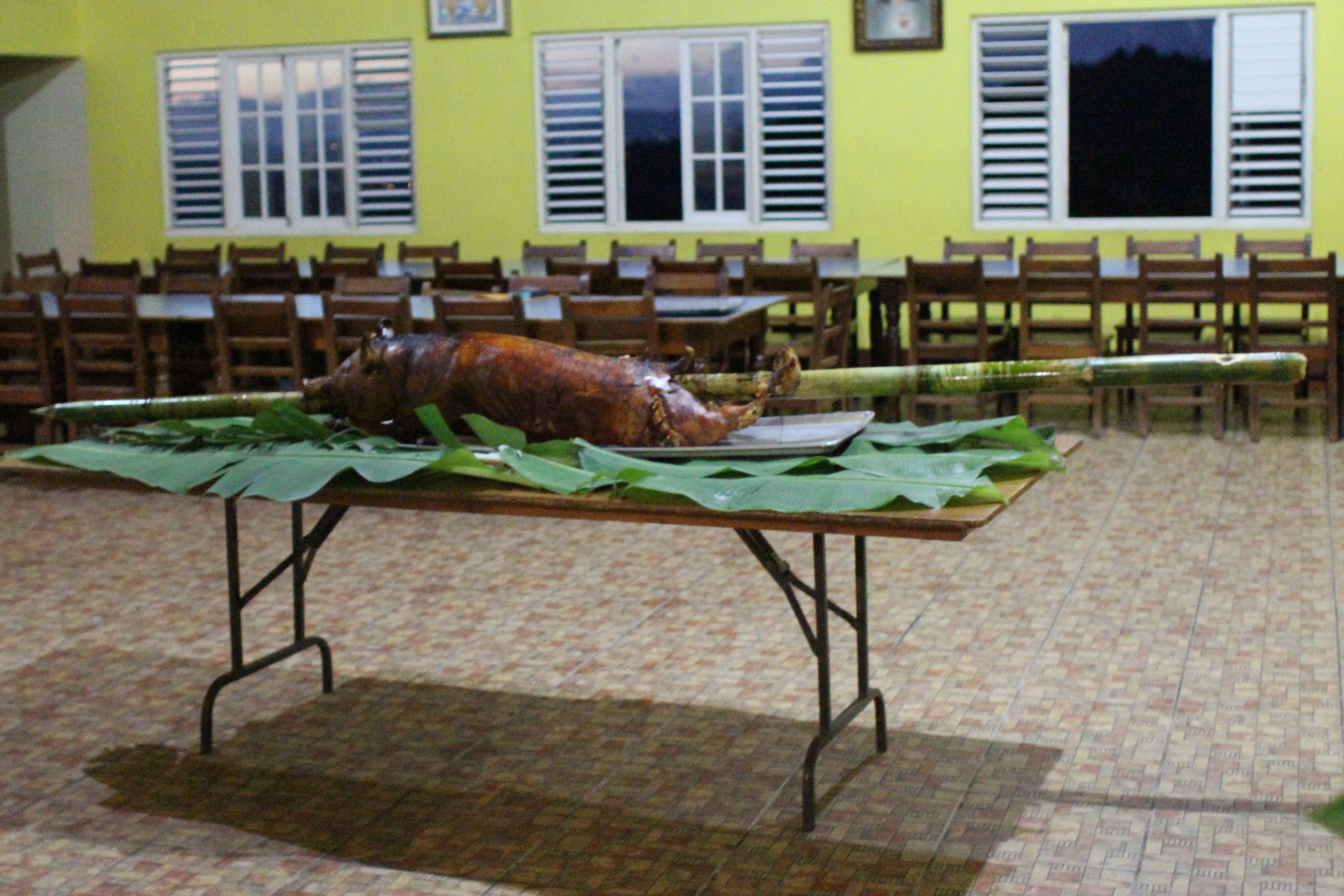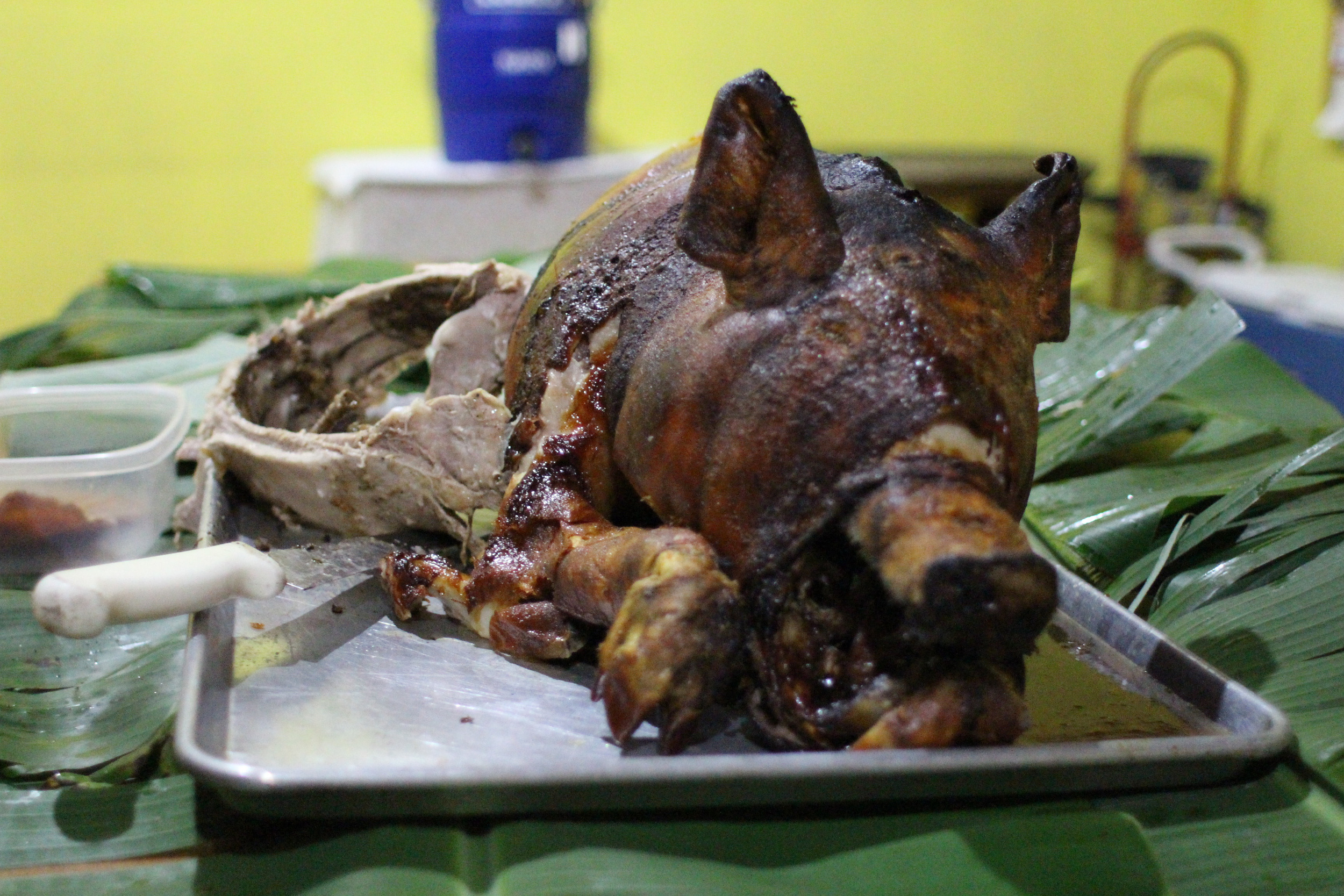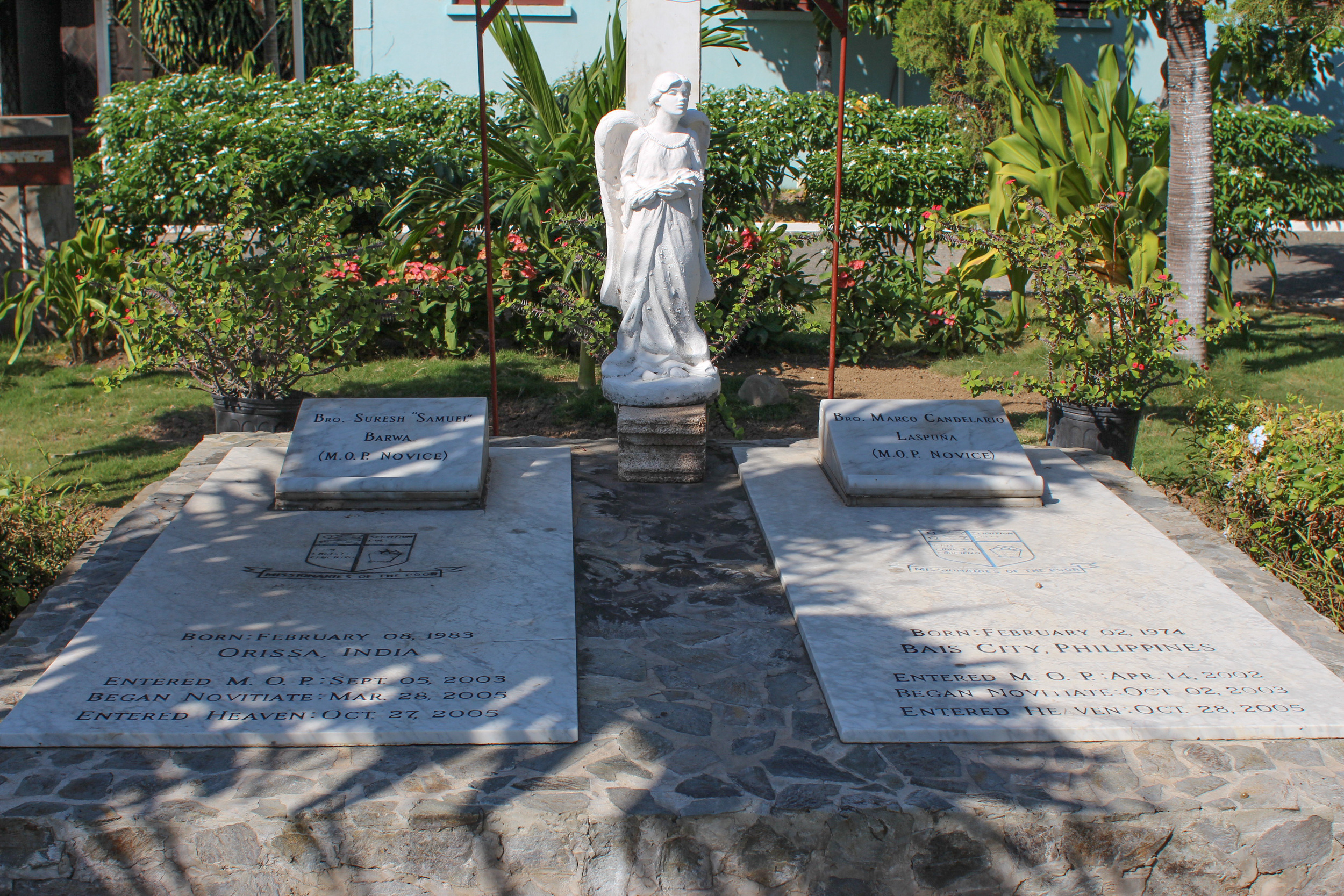My father-in-law, Jack, with Kimberly, one of the residents of Jacob's Well, whom he met on his first trip to Jamaica in 1999.
My father-in-law has been traveling to Jamaica to work with the Missionaries of the Poor in Jamaica since 1999. When I married Emily in 2009, he invited me to go on a trip with him, and I promised I would go when I had the vacation time. It took five and half years, but I finally had the opportunity to make my way down to Jamaica on January 6th for six days of service to the poorest of the poor. Before I begin, I should start by sharing a bit of the history behind the Missionaries of the Poor.
The Missionaries of the Poor was founded in 1981 (originally called the Brothers of the Poor) by Fr. Richard Ho Lung to serve the poorest of the poor in Jamaica. Fr. Ho Lung was born and raised in Jamaica to Chinese immigrants. He became a Jesuit priest, but later left the Jesuits to focus on serving the poor. In the late 70s, Fr. Ho Lung, along with two companions, Brian and Hayden (now both priests of M.O.P.), would regularly visit the abandoned and disabled in the government-run Eventide home, a hell hole where there were more rats taking residence than humans, and the men and women who did live there had to deal with the overbearing smell of feces and urine. These are the people Fr. Ho Lung and his companions sought to serve.
One of the residents at Jacob's Well has her hands painted by one of the volunteers from our group.
As the Missionaries of the Poor grew, they started their own "centers" to house the poor of Jamaica. They now run about half a dozen centers in Kingston alone. When I use the term "poorest of the poor," these are people who often have no family, no one to care for them, are often developmentally or physically disabled, and sometimes found literally abandoned in the gutters of the streets of Kingston. In the centers, the brothers, local volunteers, as well as volunteers from abroad, serve the residents by helping them bathe, cleaning their living quarters, changing their diapers, feeding them, singing with them, praying with them, and loving them in everything they do.
Meeting the residents of the centers was an immensely joy-filled experience. My first day I visited Bethlehem House, a residence for babies and young children. Many of the residents have severe symptoms of cerebral palsy and are confined to cribs in contorted positions. This was an emotionally challenging first assignment, but I very quickly learned to adopt an attitude of simply "I am here to serve" and did my best to do what the women asked me to do in terms of changing sheets, clothing the children after their bath, and feeding them at lunch time. In the afternoon, we got to take some of the boys outside to play, which was so much fun! Some of the boys just sat in their strollers and smiled, while others were able to walk around and get their feet in the grass.
I can't remember this boy's name. He couldn't speak, but he had a blast climbing all over the swing set.
I also spent time at Lord's Place and Jacob's Well, both of which are residences for older women. The residents at Jacob's Well were a bit more independent. One of the amazing things to witness was how they lived in community with one another. At one moment, everyone would seem to be sitting down, doing their own thing, and the next moment, one resident would be pushing another wheelchair-bound resident to the pavilion for prayer time. Some residents swept the floors and helped with dishes. Others needed to be fed their meals and relied more on the help of others.
Me and Sophia, one of the residents at Jacob's well. She had one of the most infectious smiles I've ever seen.
What amazed me most about the women at Jacob's Well was the joy that they had. So many of them ran up to you when you came in and were so happy to have visitors join them. While they didn't have much in terms of possessions, they truly had so many of their needs taken care of that it wouldn't be an exaggeration to call them rich in many different aspects. They had community, work if they were able, shelter, food, water, and all of the care to live a peaceful life.
We ended up going back to Jacob's Well for a second day, which totally transformed the experience. Whereas on the first day we spent a lot of time getting acquainted and meeting the residents, on the second day, we already knew the women, so we could jump right in and start spending time with them. We had so much fun that second day and I already miss not being able to go back and see them.
The brothers paint in vivid colors everywhere, even their chapel, because "colored paint cost the same as black paint," as Fr. Ho Lung pointed out.
As amazing as it was to spend time with and get to know the residents of the centers, that's only half of what I experienced during my time in Jamaica. The Missionaries of the Poor are not a purely humanitarian organization. They are a group of men devoted to Jesus Christ and His Church. They pray regularly. Their service to the poor is how they live out the Gospel. Everything they do comes back to their service of Jesus.
Fr. Dionisio, giving a tour of Mt. Tabor monastery to a group of volunteers.
Each day, we rose very early (normally it would be 5:30, but they were on Christmas vacation for three days, so we rose at 6:30), and have mass, morning prayer, and adoration. This lasts about an hour and a half. At noon, while working in the centers, they pray daytime prayer together, and back in the residences in the evening they pray evening and night prayer together as well as the rosary. It's about three to four hours of prayer every day.
Bro. Elijiah was responsible for coordinating all of the volunteers, a tremendous task!
For me, entering into a disciplined life of communal prayer was a breath of fresh air. I had been a seminarian (studying to be a priest) for three years back in college, so this type of life was very familiar to me. I was surprised by just how familiar it was and how much I craved to be a part of that life. I was thankful that I left my iPhone at home and I looked forward to every time the bell rang to call us to prayer with the brothers.
I know for me, witnessing the disciplined lives of the brothers was a call to accountability, not just in prayer, but also in the other domestic activities to which I'm a part. In the monasteries, the brothers all pitch in to get things done. They take pride in having a clean home and enjoy their meals together. They put a lot of energy into simply having a nice place to live. I think of the vivid colors on the walls and how they have such beautiful landscaping, even in the midst of the ghettos of Kingston. That made a tremendous impact on me and called me into greater service in my own home and family life. I want my home to be a place that I'm excited to live in.
The chapel at Corpus Christi monastery has big open air windows that let in tons of light. Sunday mass there was incredibly joyful. Note the Missionaries of Charity sister (Mother Theresa's order) two rows up.
On Saturday, we only worked in the centers for half a day. While we were going to spend the afternoon visiting one of the local tourist trap markets in Kingston, at the last minute my group was offered the opportunity to visit Mt. Tabor monastery, which sits high on the hills above Kingston. We gladly accepted and this ended up being one of the highlights of my trip.
The monastery is almost self sustaining. They have pigs, cattle, chickens, rabbits, as well as a full garden of fruits and vegetables. It's noticeably cooler up there and the views of the surrounding hills are immensely peaceful.
The big highlight of the trip of the mountain was being able to meet Fr. Ho Lung in person, who was giving a retreat at the time to several of the brothers at the monastery. I had been reading a recent biography of Fr. Ho Lung, Candles in the Dark, and had become enamored with the story of how much he was able to accomplish through his zeal of serving the Lord and serving the poor. I asked him what his hopes were for the Missionaries of the Poor, and he said that he wants the Church to continue to grow, and to grow as a church for the poor (being "a church for the poor" is a common theme heard from Pope Francis) . When I told him how encouraged I was by the brothers and their regular life of prayer, he shared that we all need to be in constant renewal of our relationship with the Lord, even himself! It's hard to imagine that a nearly eighty-year-old man who is so firmly rooted in his faith would need to reevaluate his relationship to Jesus.
My group with Fr. Richard Ho Lung, the founder of the Missionaries of the Poor.
One of the things I thought about on my last day in Jamaica was just how much I realized that life is not disposable. So many of the people that the brothers care for had literally been thrown away in their previous life. Thrown away! When you get to know the residents, you realize just how much they have to give to you, the volunteer who came to serve them. You show up thinking you are going to serve them, but you realize when you leave that it is really you who has received the lion's share of the gift. You yearn to simplify your life and treasure the relationships with those near to you.
I think too, being a part of the disciplined lives of the brothers, which included regular prayer, service, and the removal of so many life's distractions, was an invitation to simplify and find discipline in my own life upon returning home. I most certainly will be back to serve with the Missionaries of the Poor in Jamaica.
Click the pictures in the gallery below to see more of my trip to Jamaica.
Top Photo: Sunset from the Mt. Tabor Monastery, Kingston, Jamaica. All images copyright Ben McCormack. All rights reserved.











